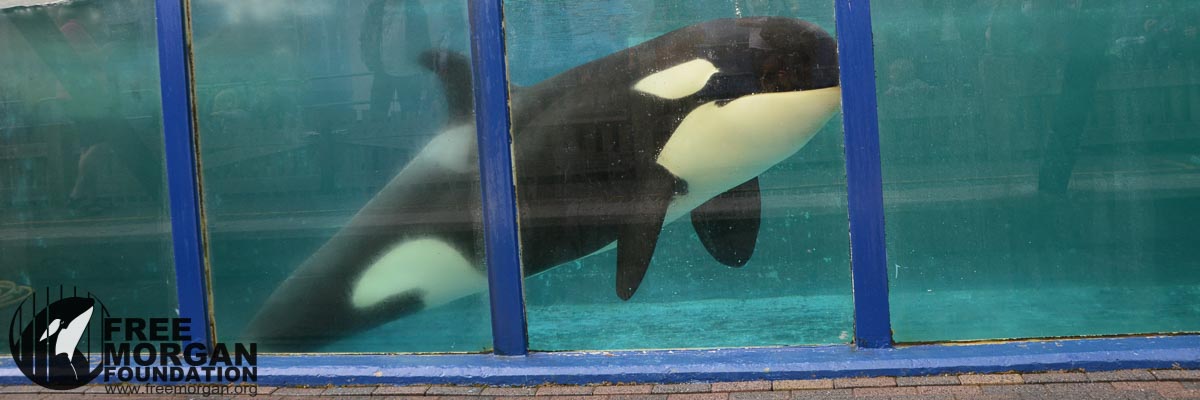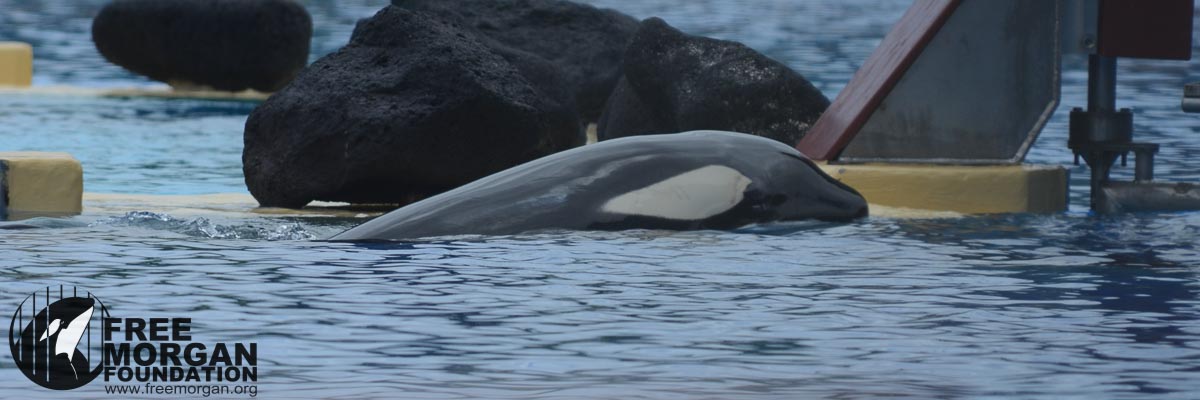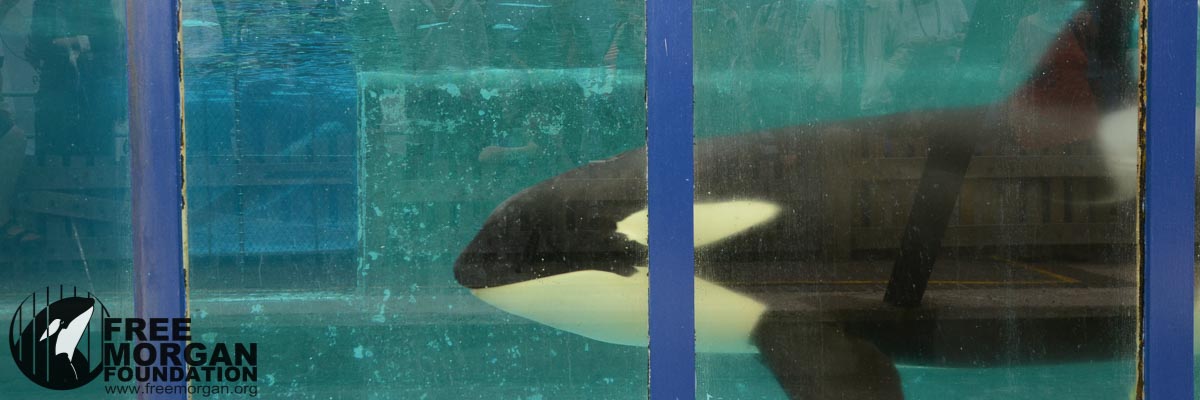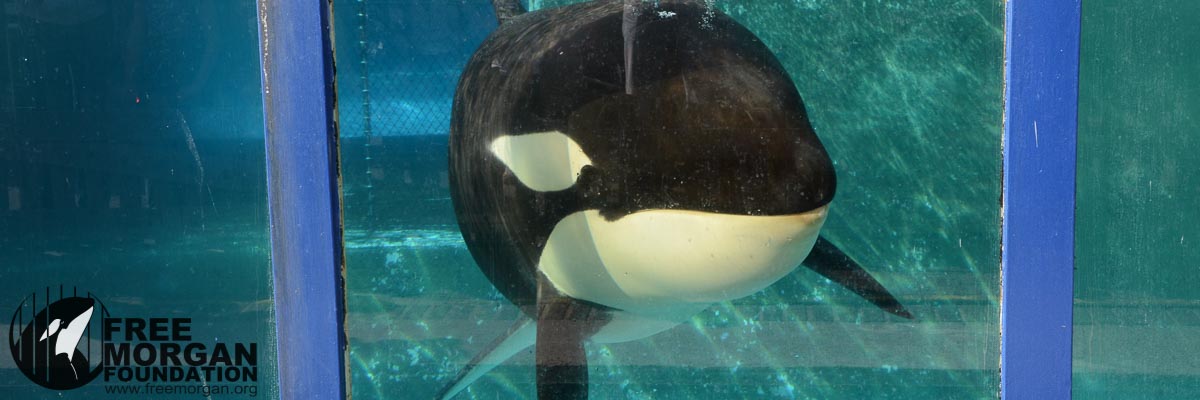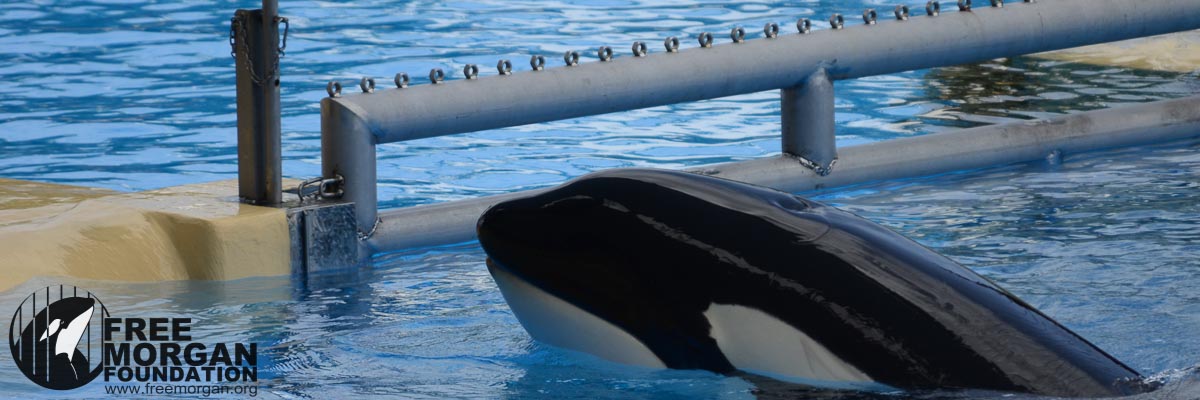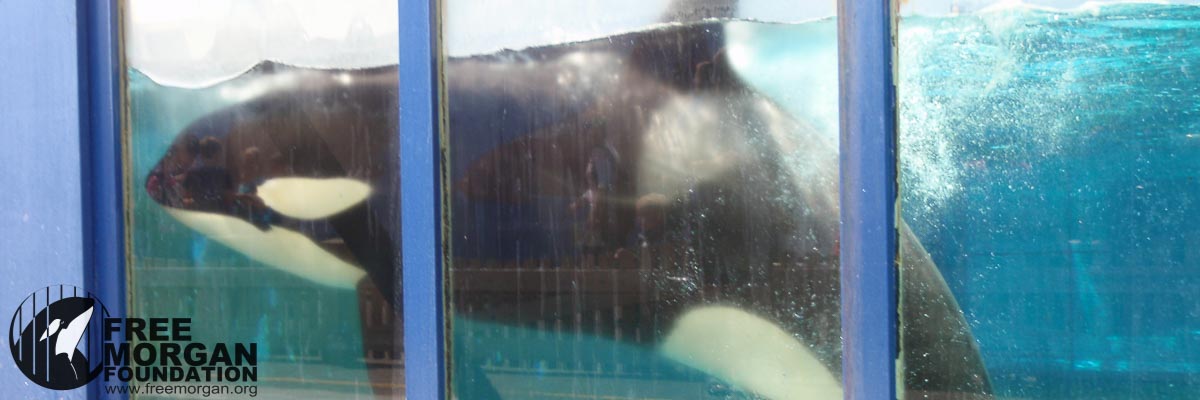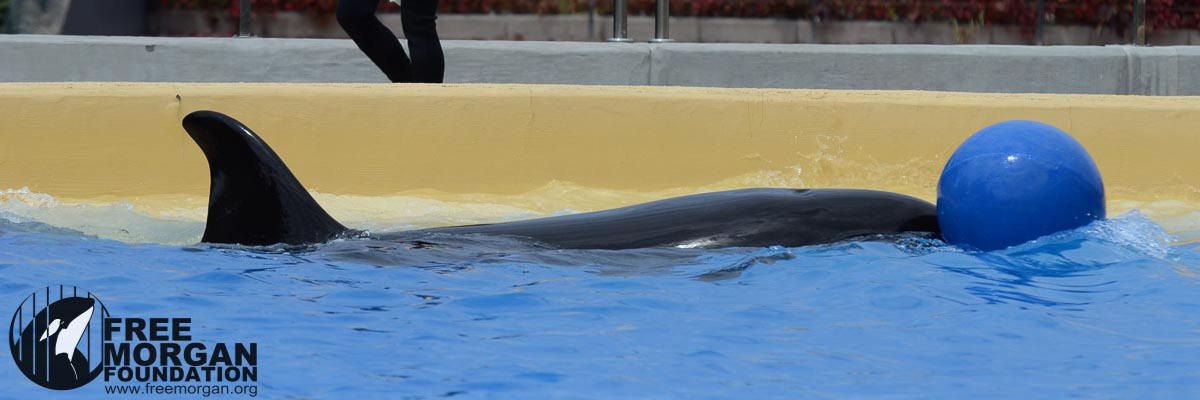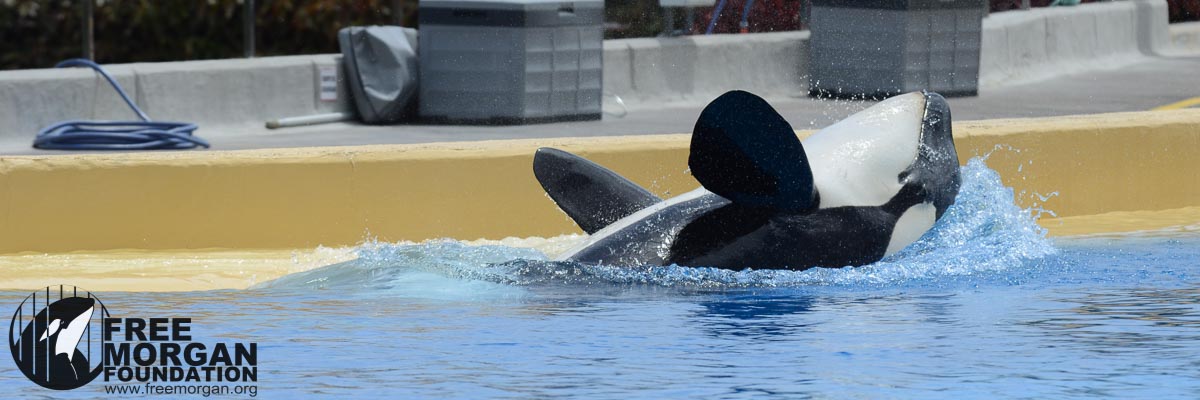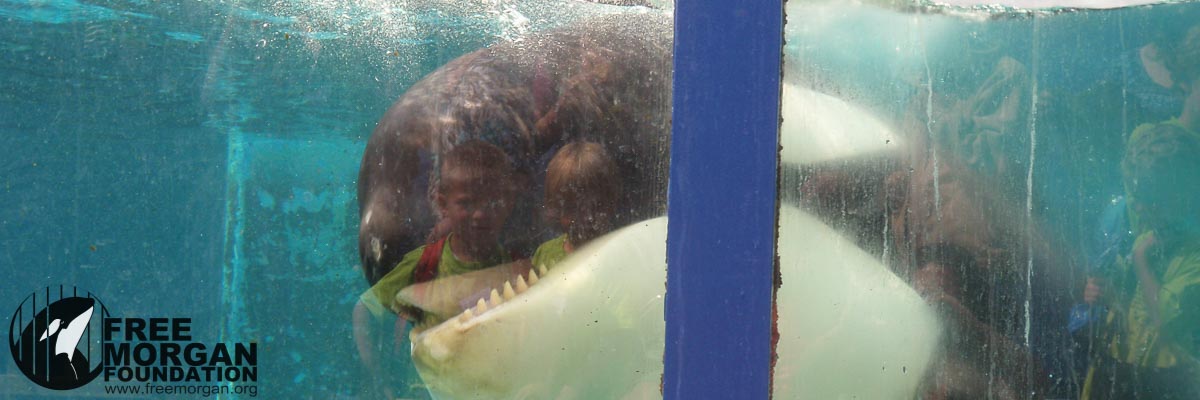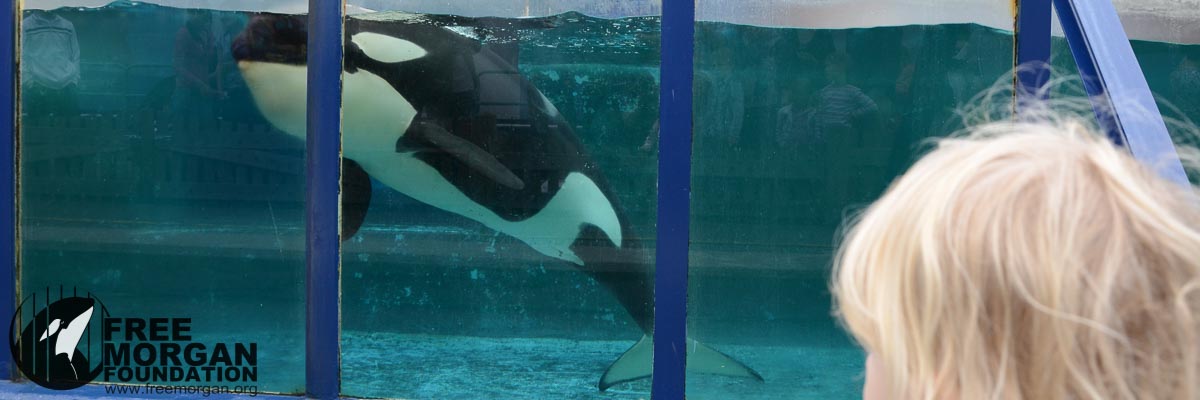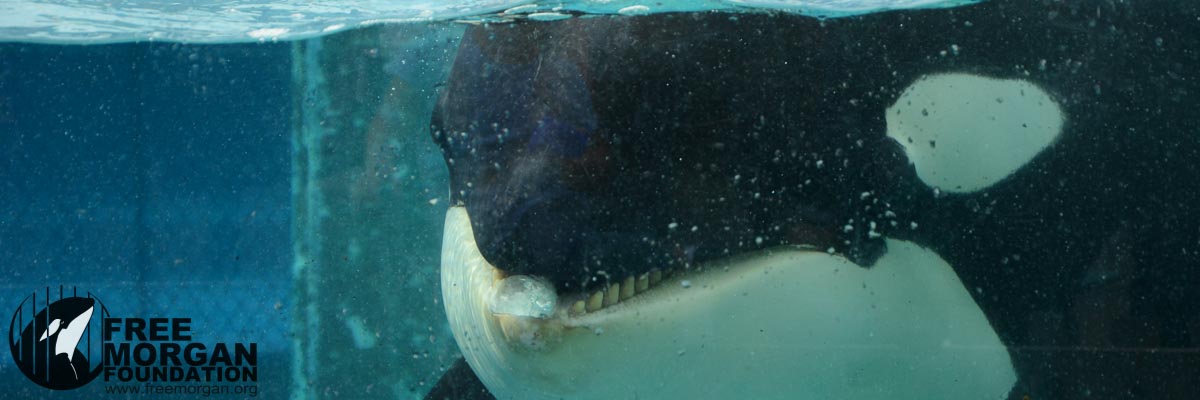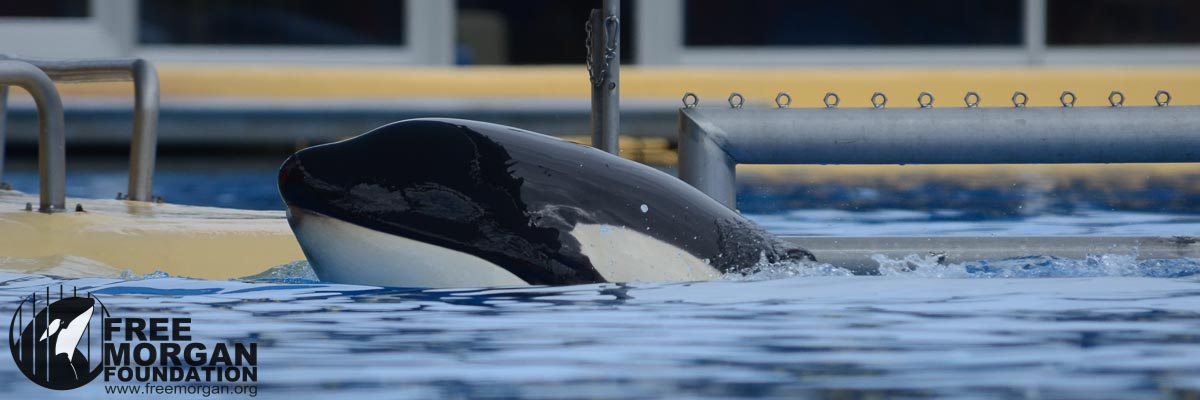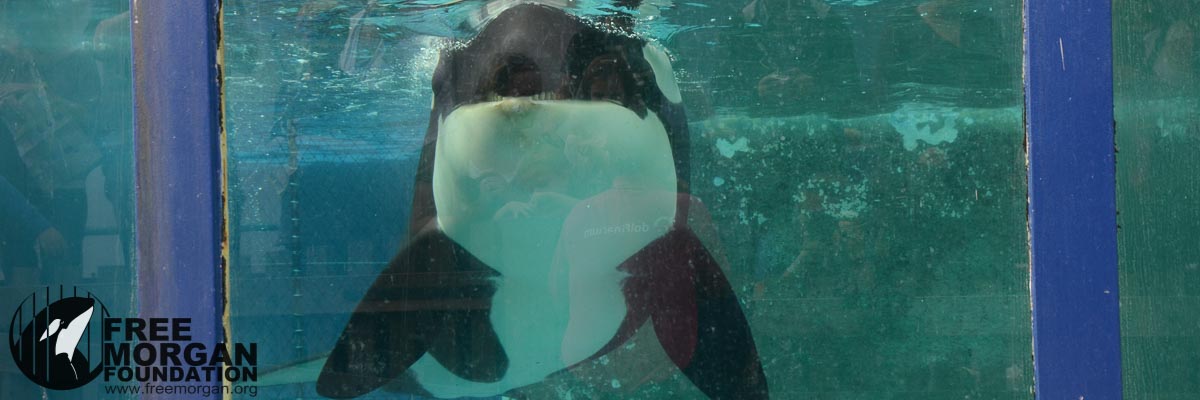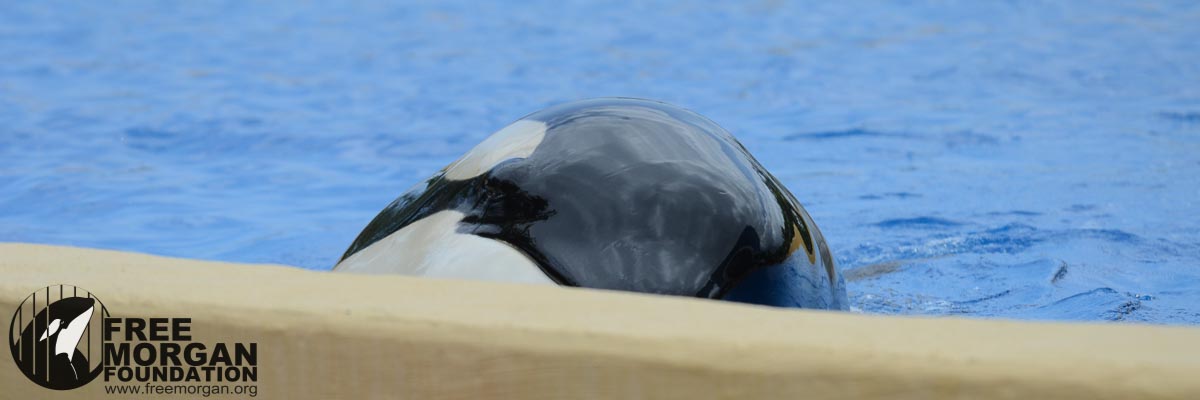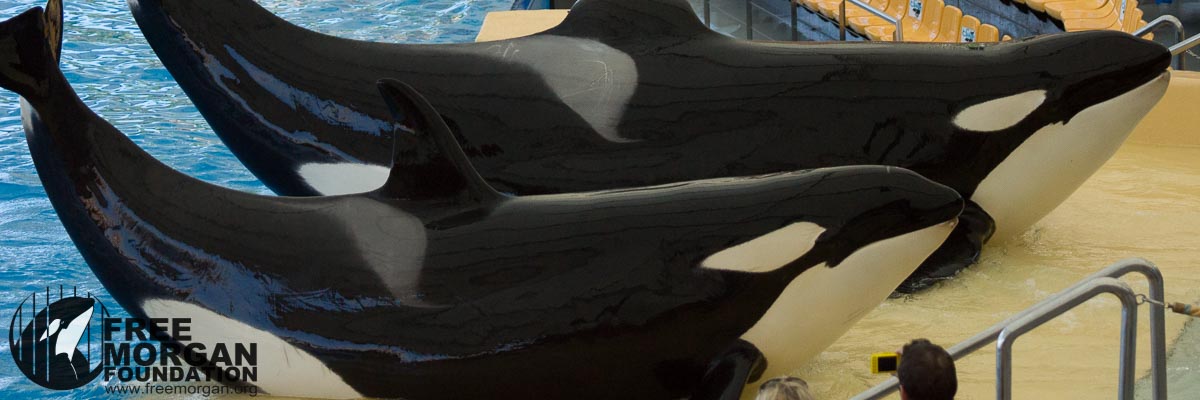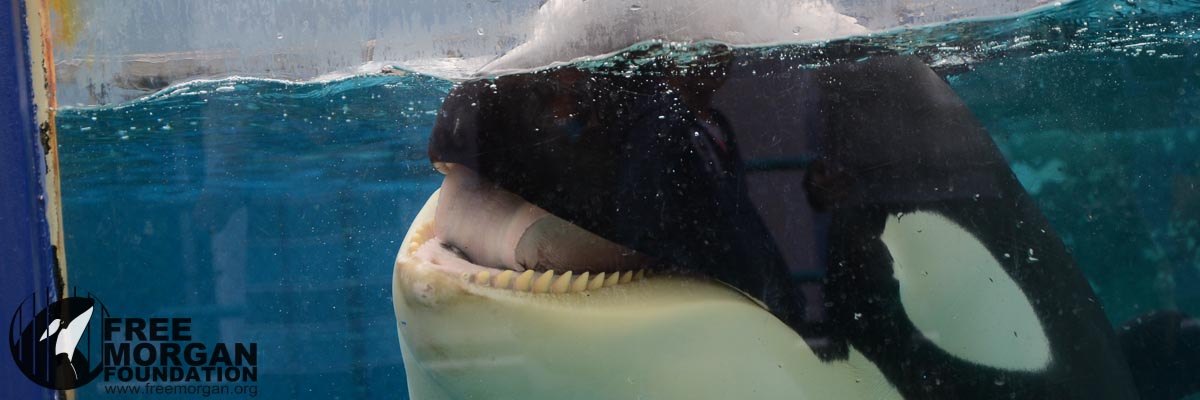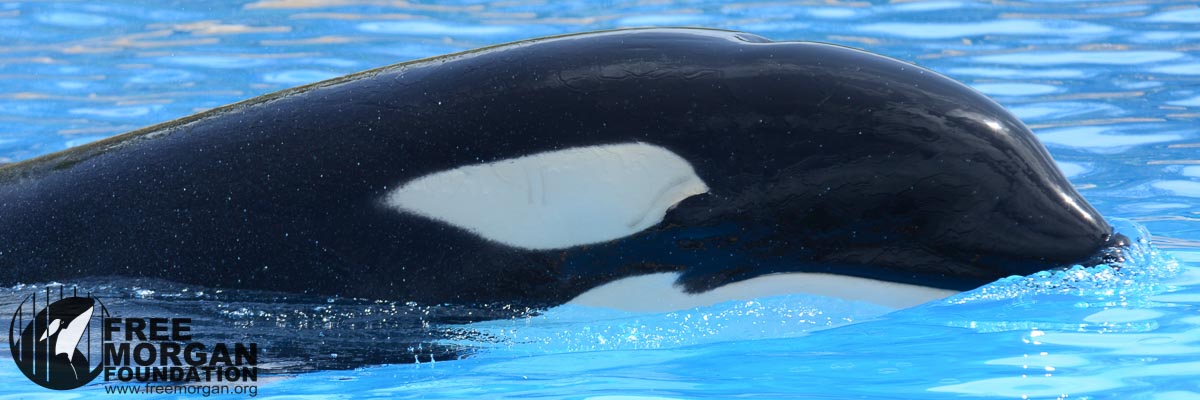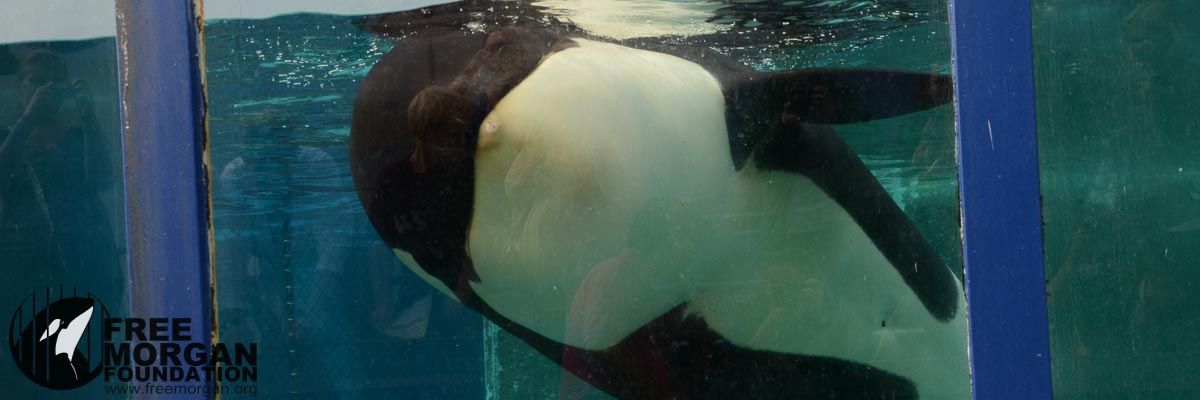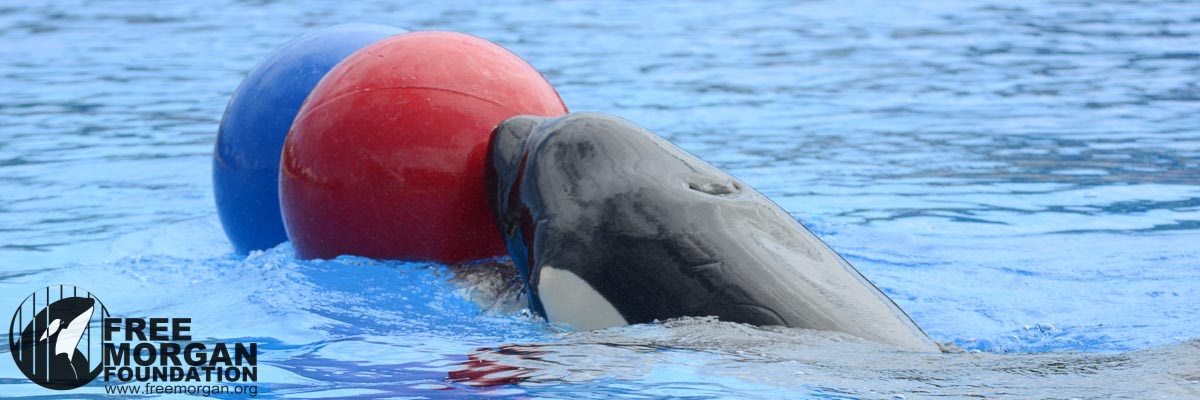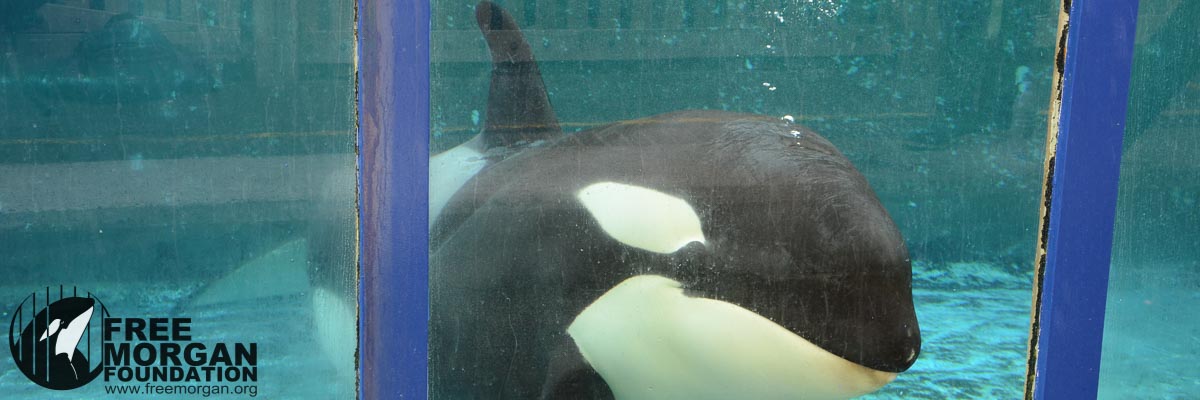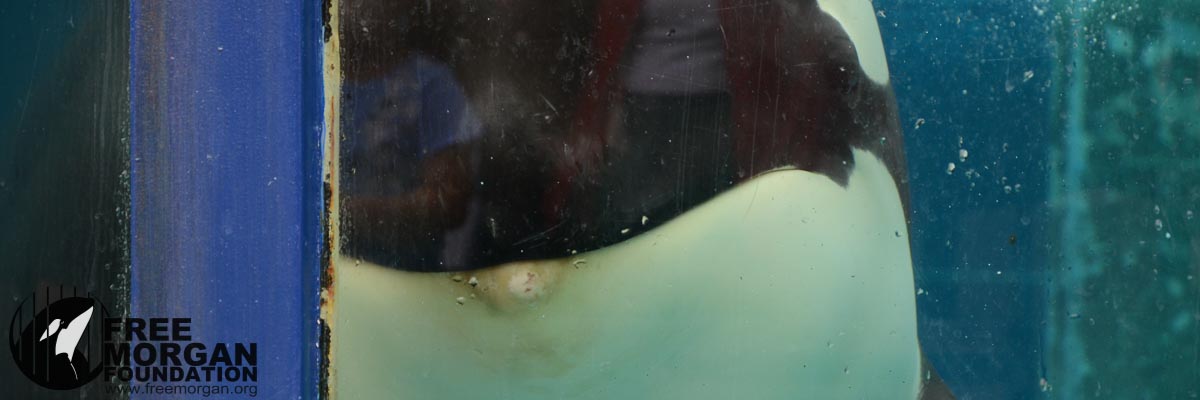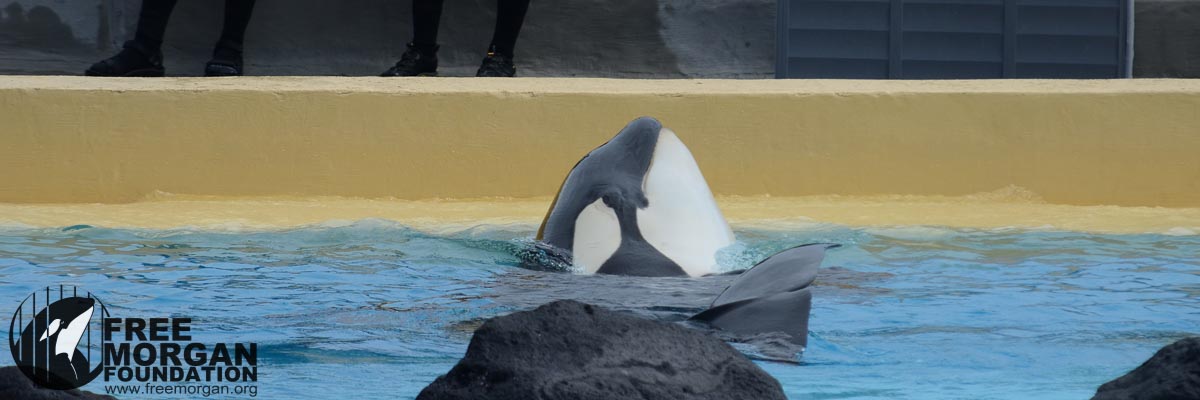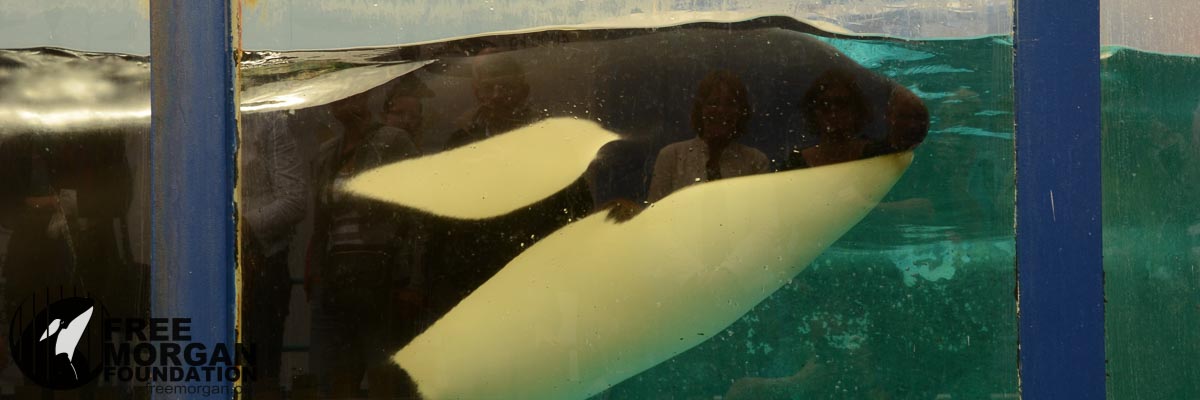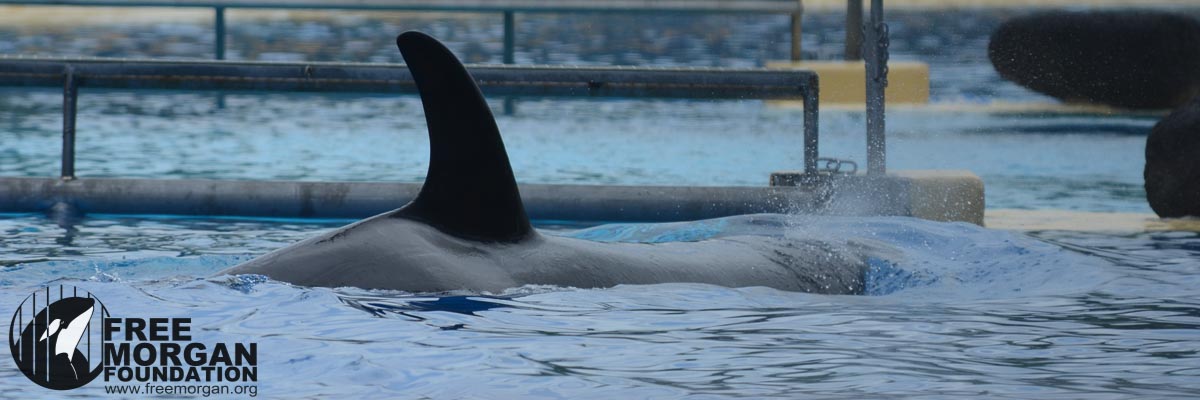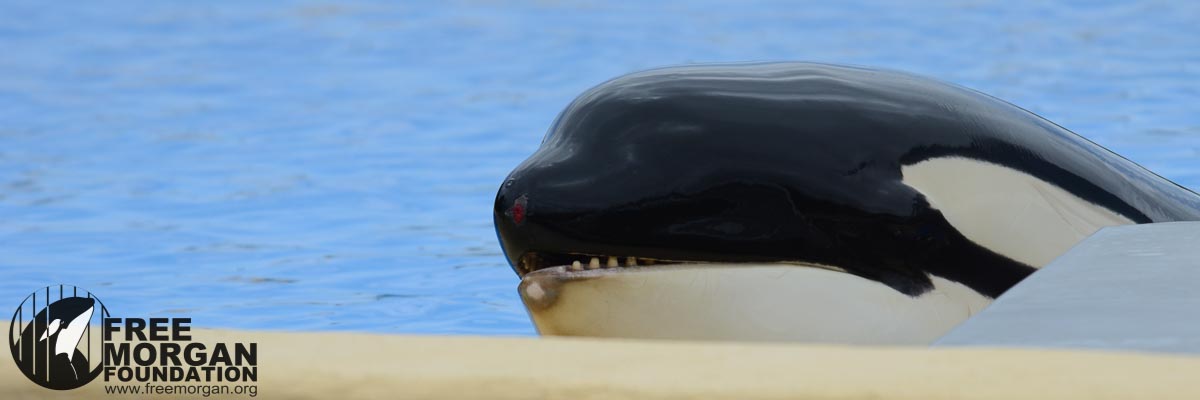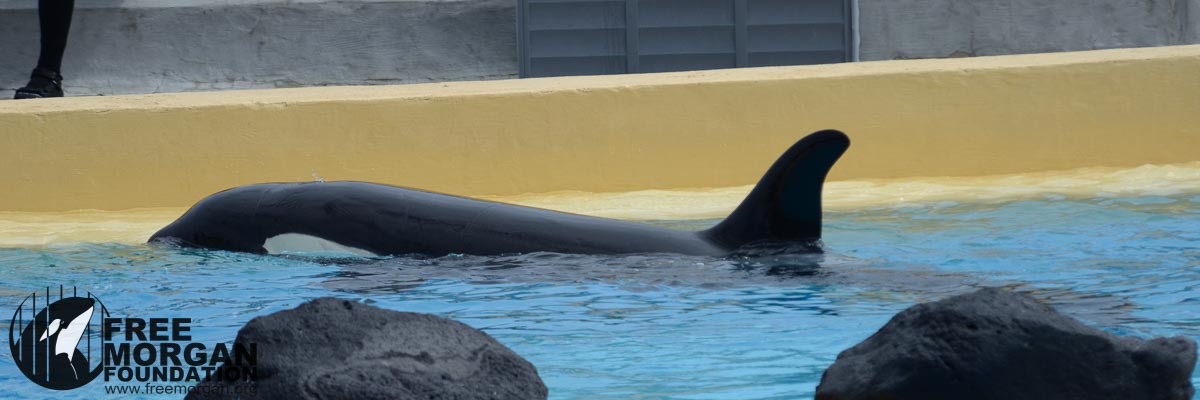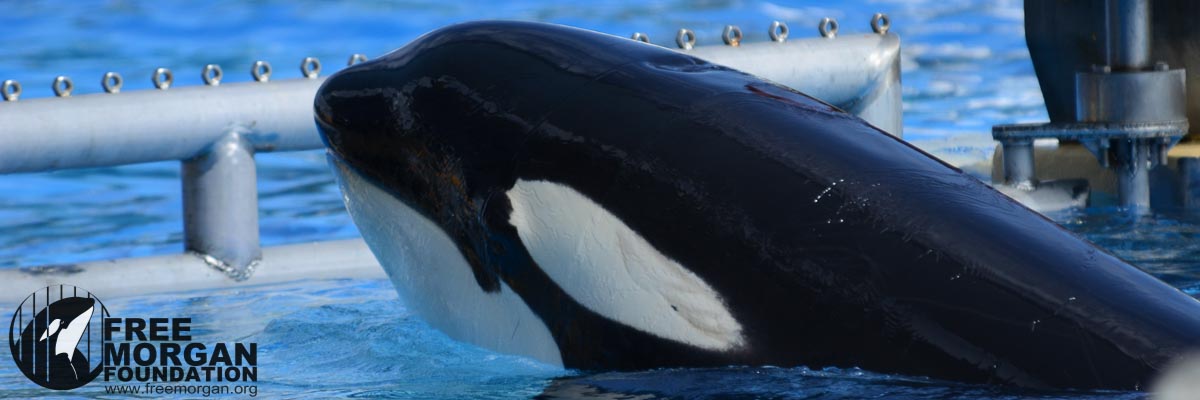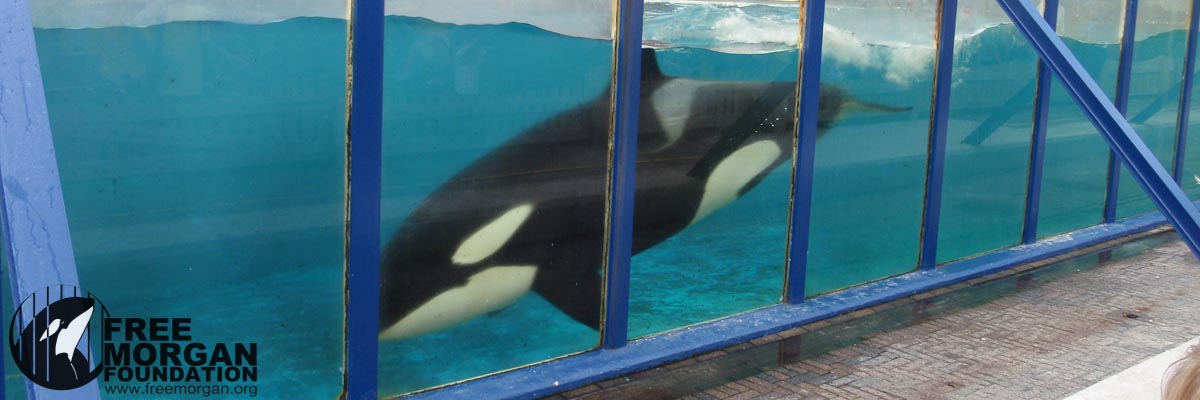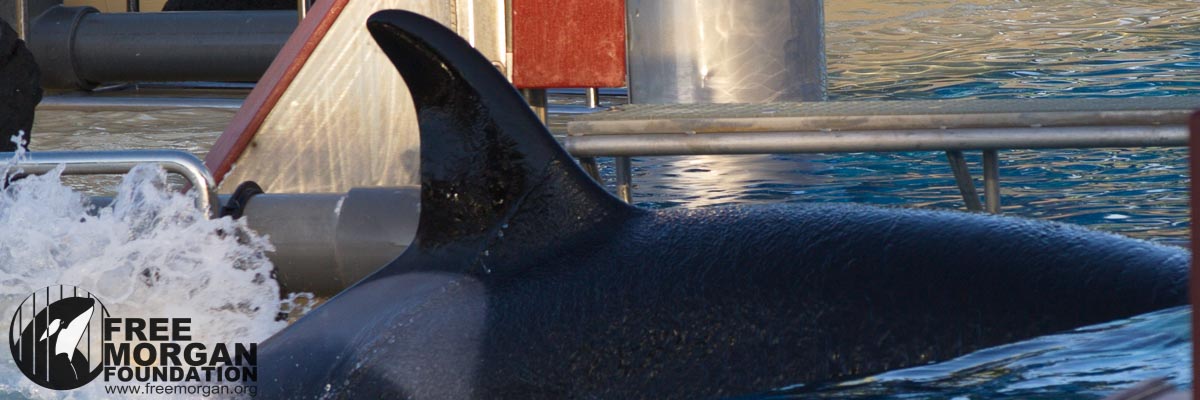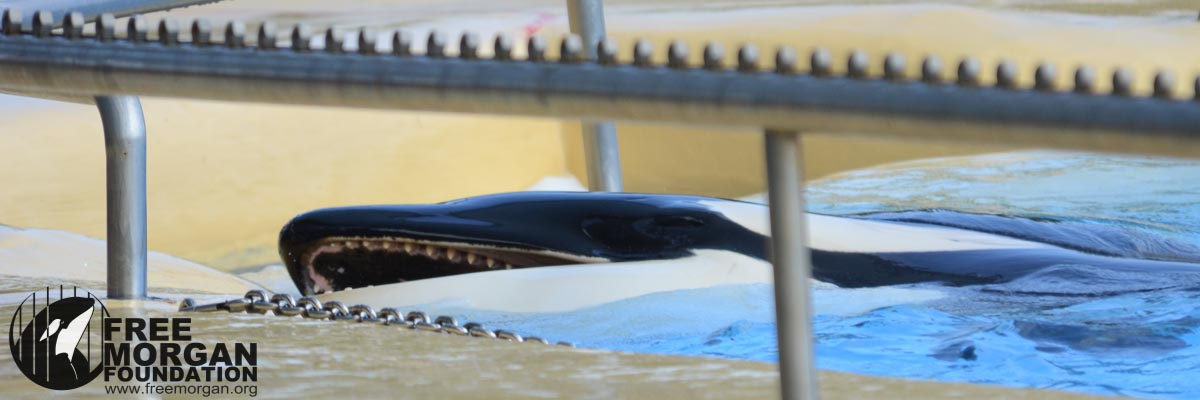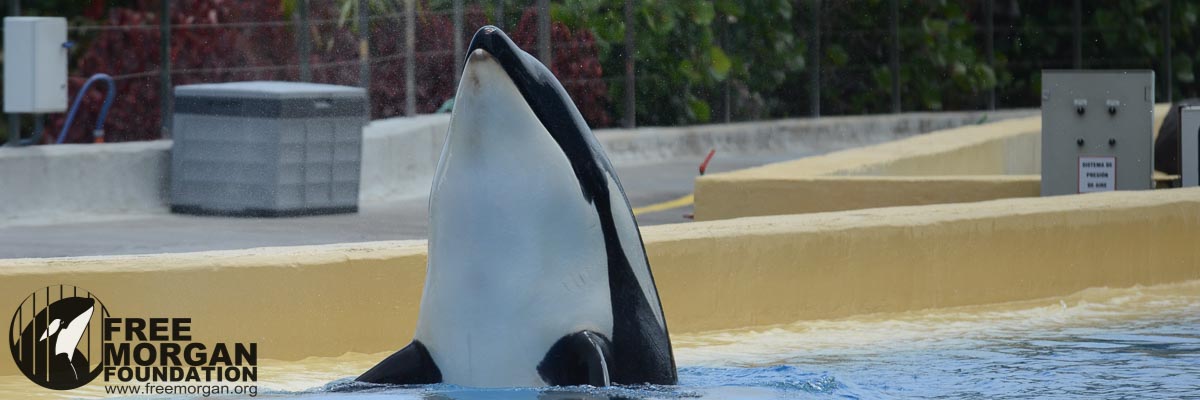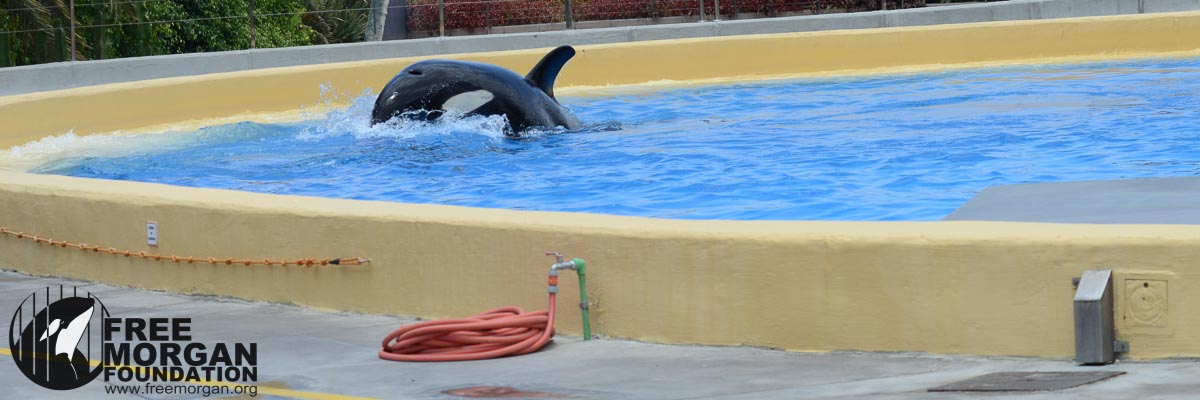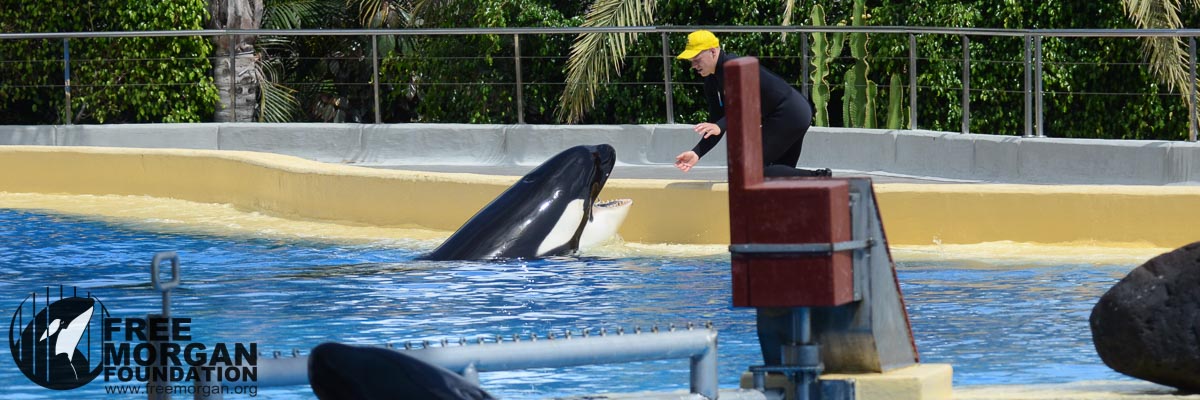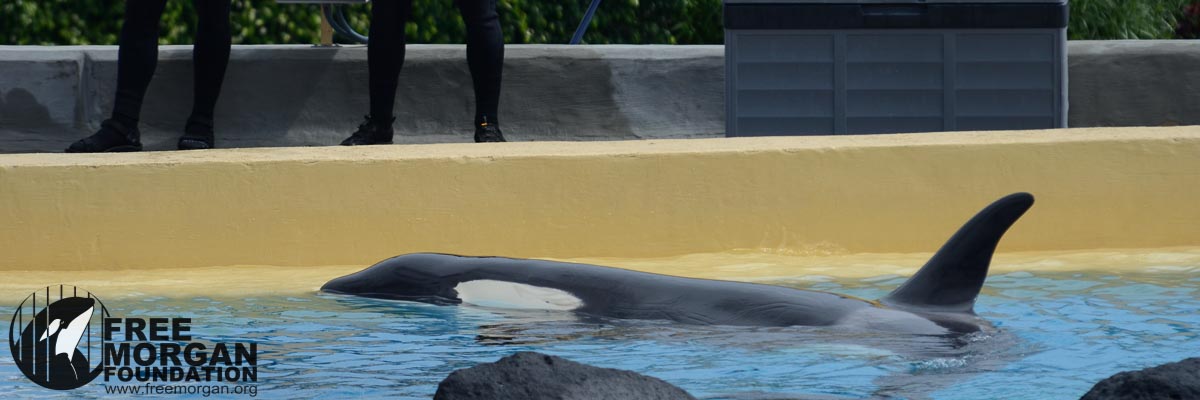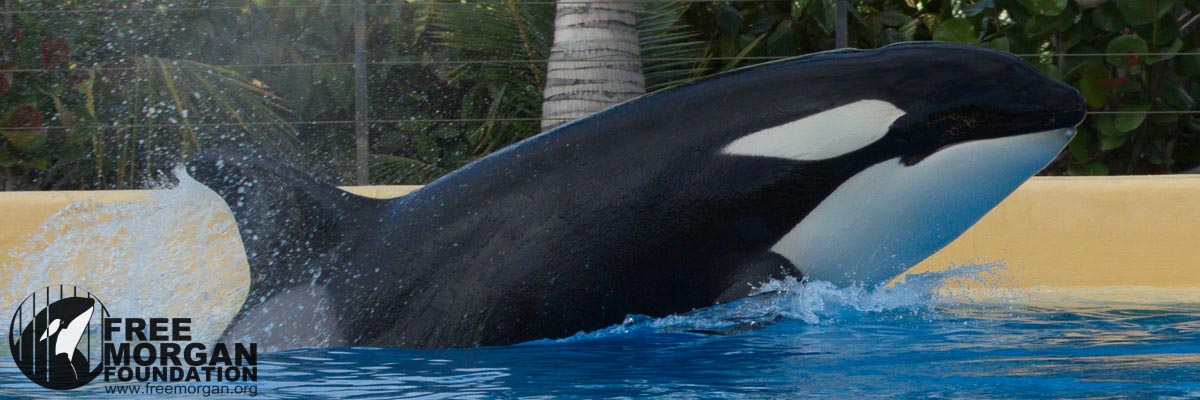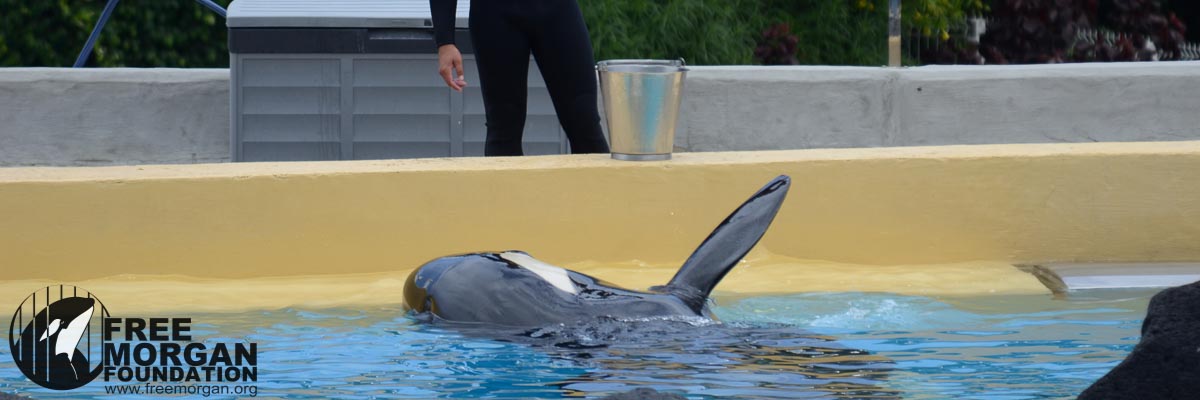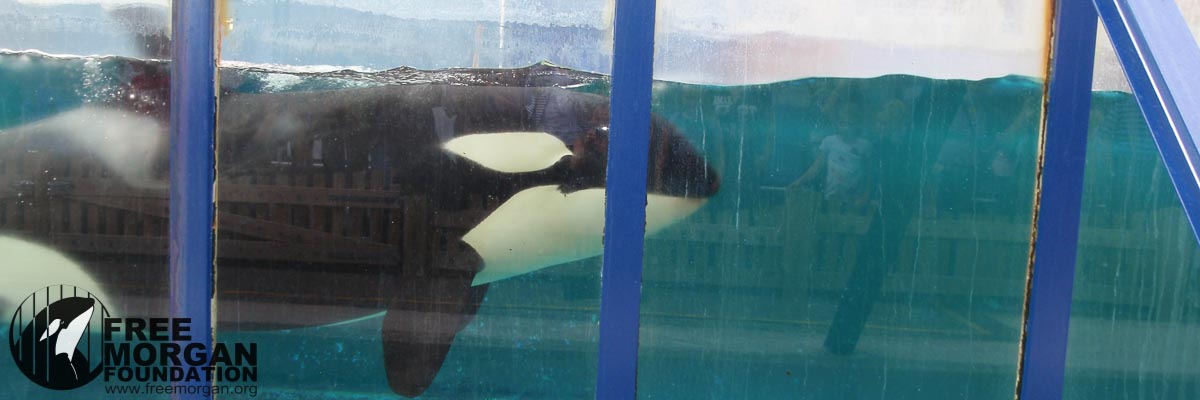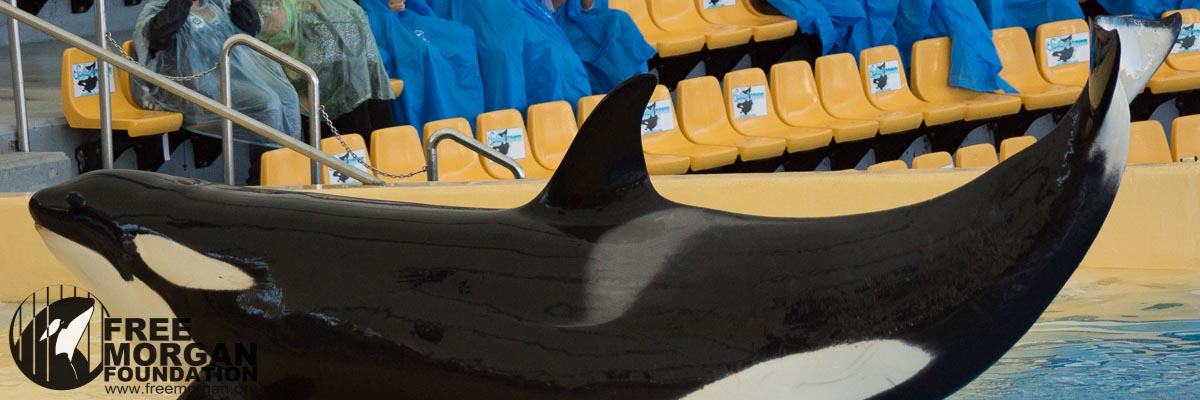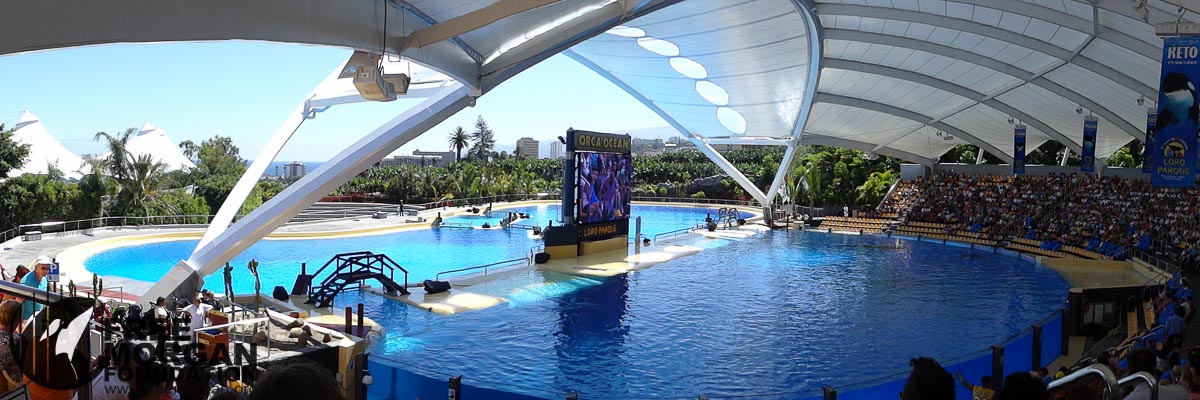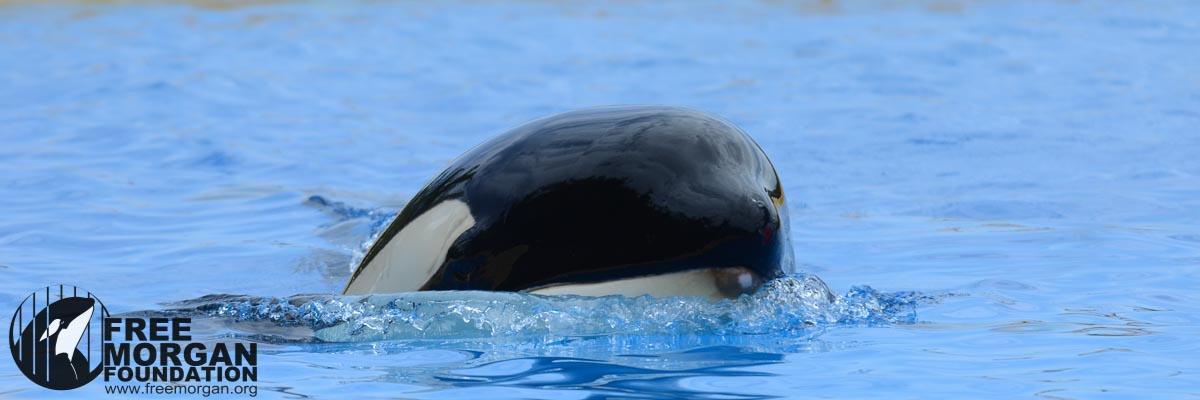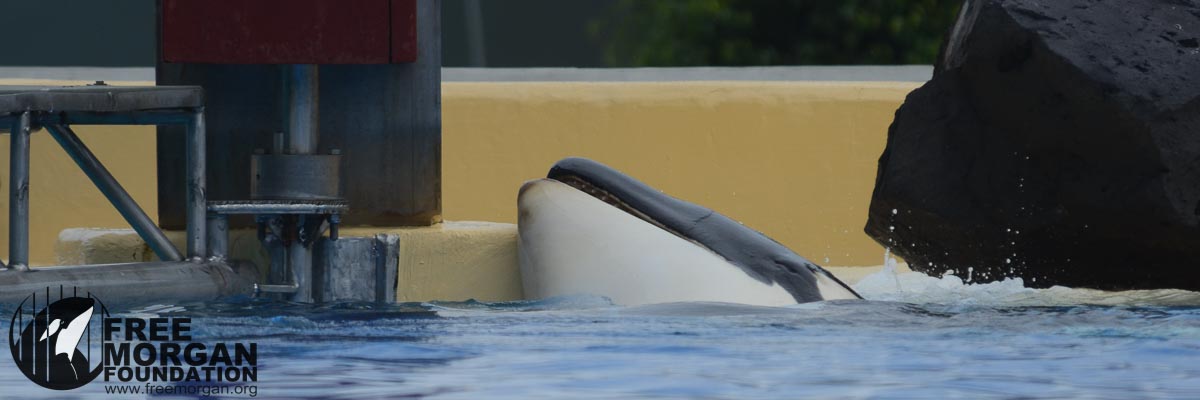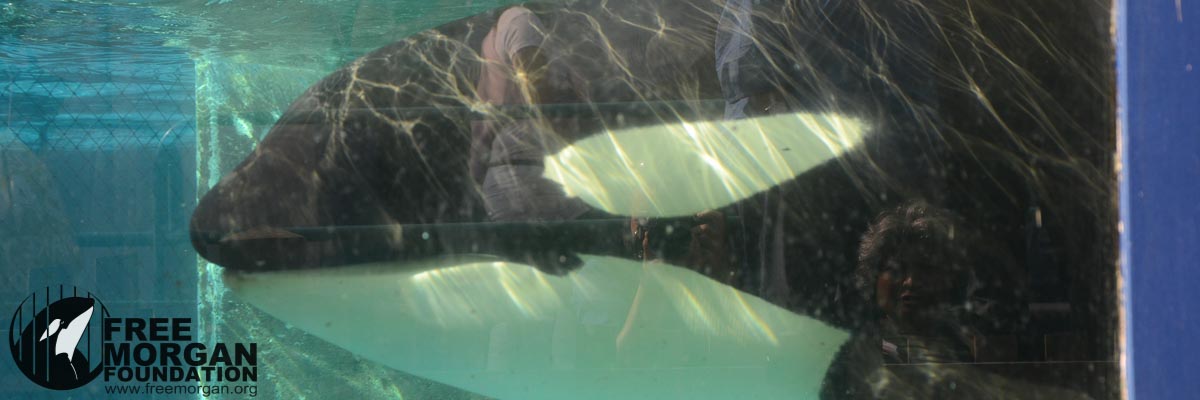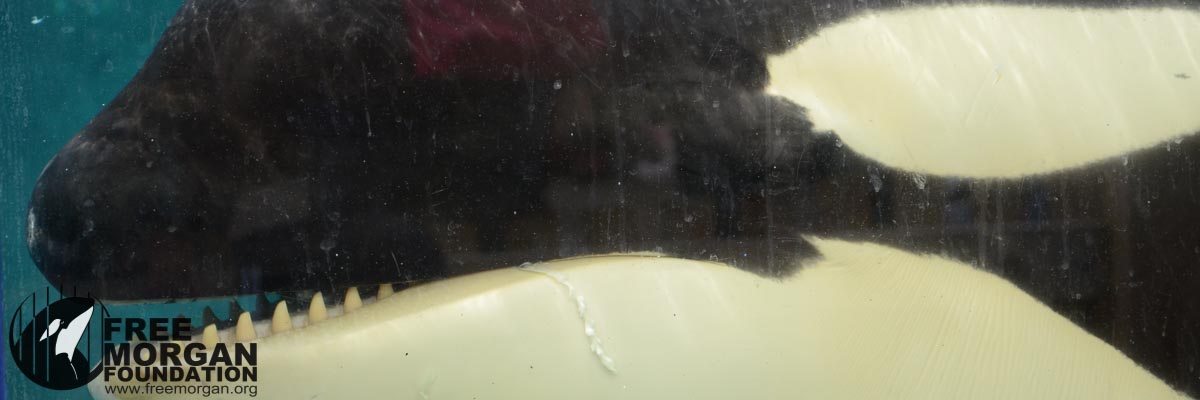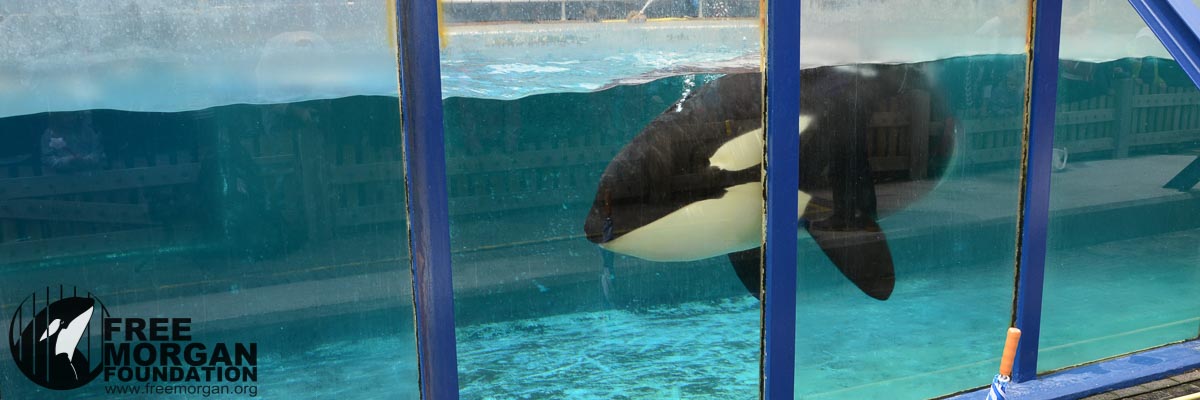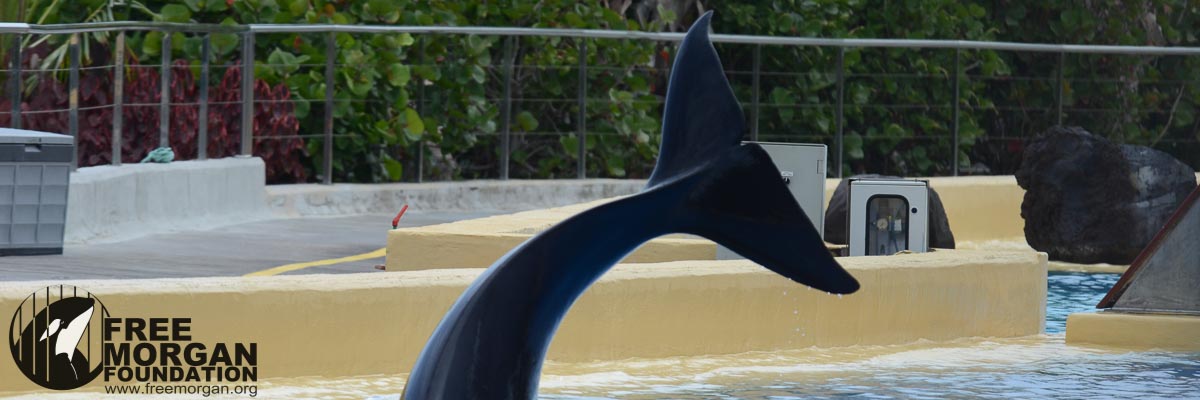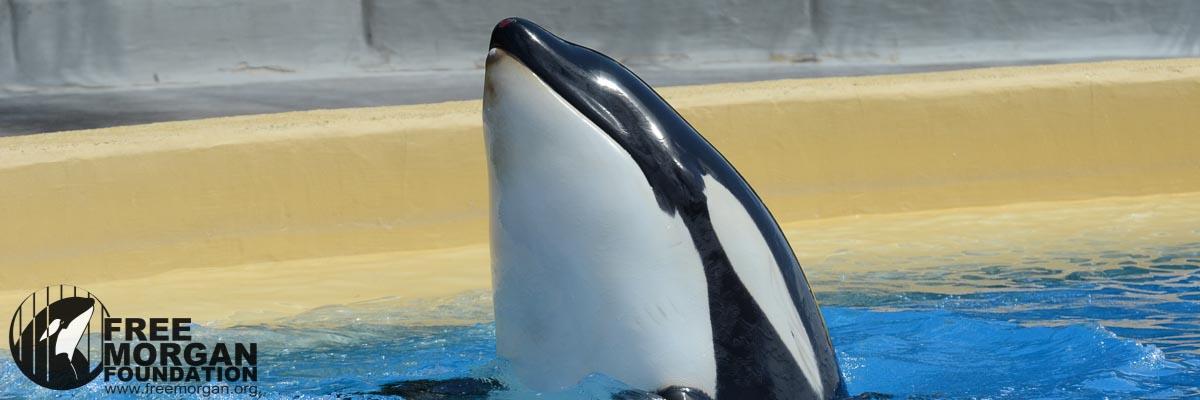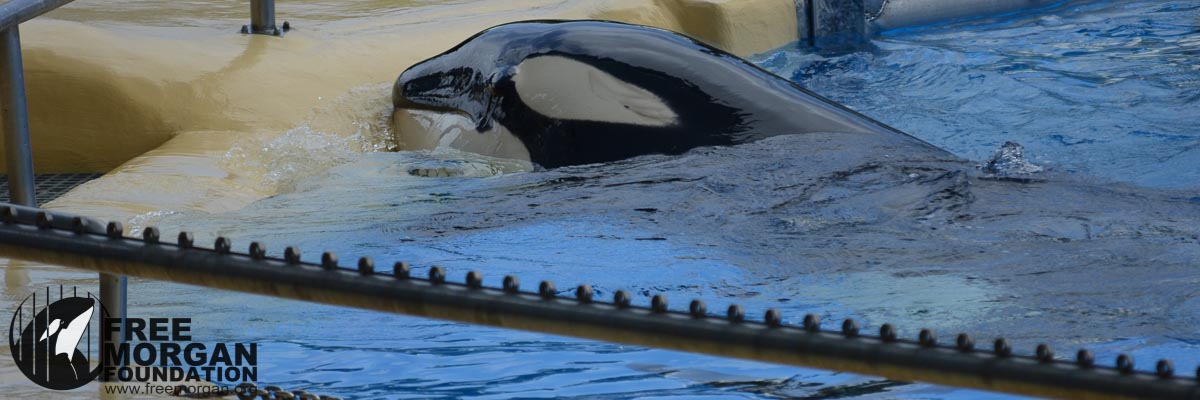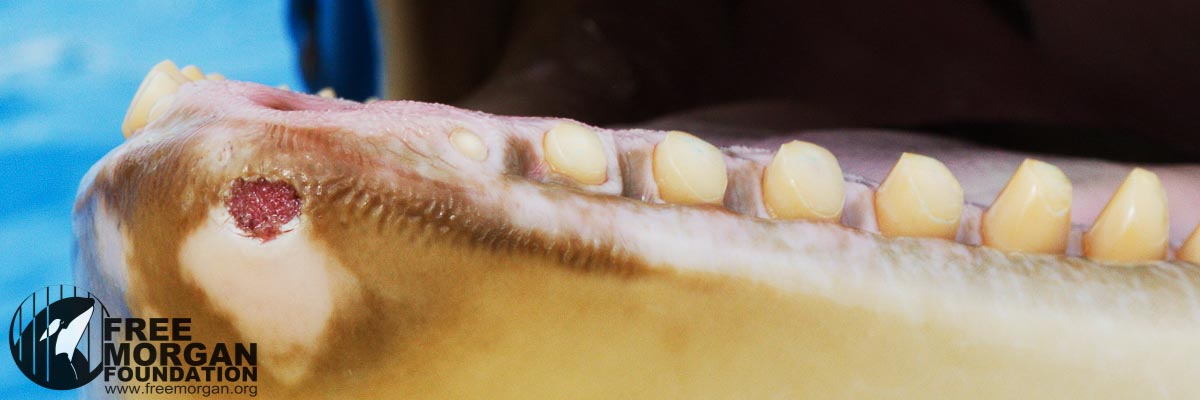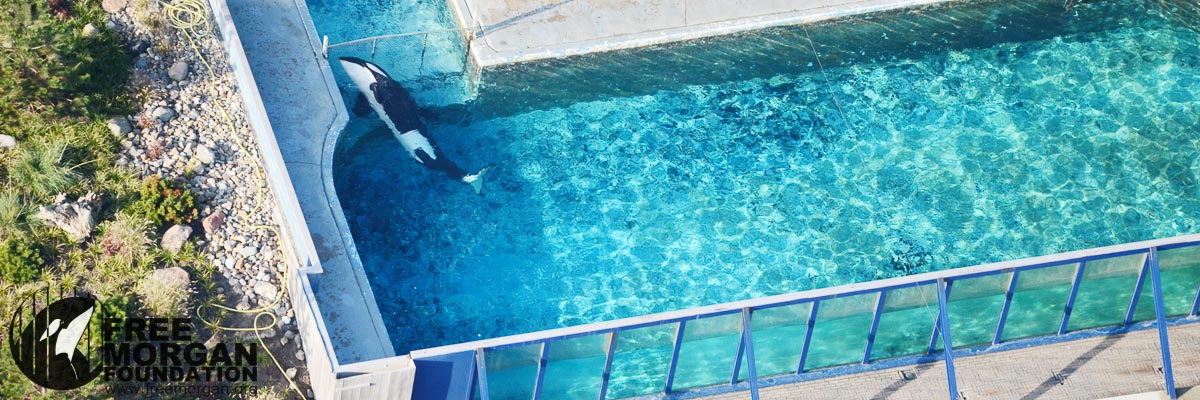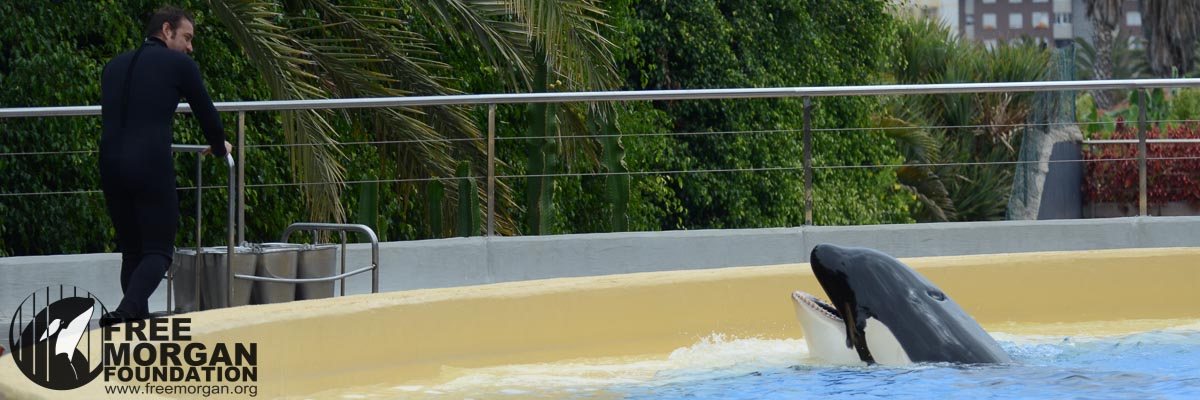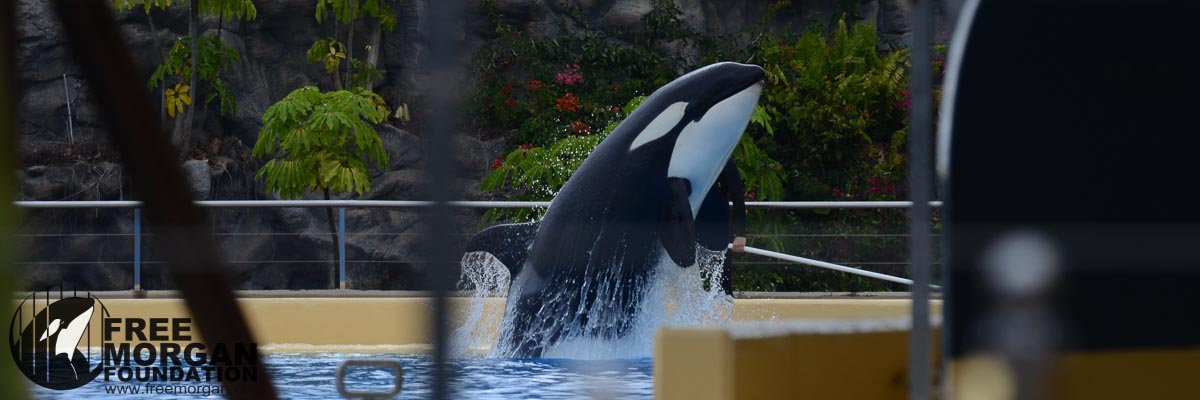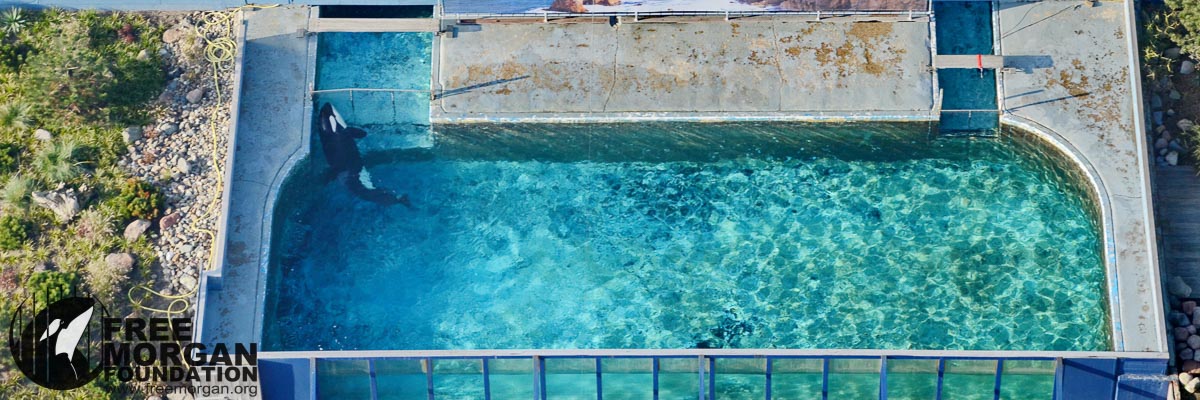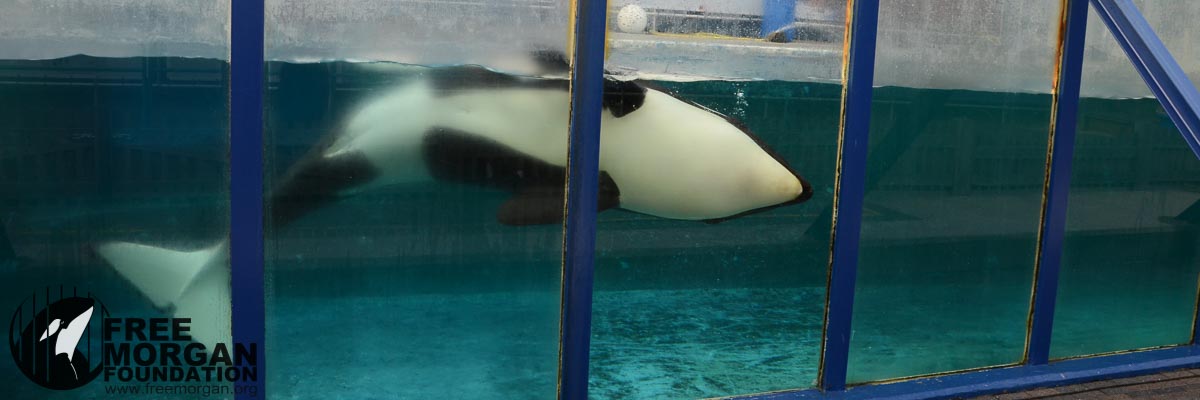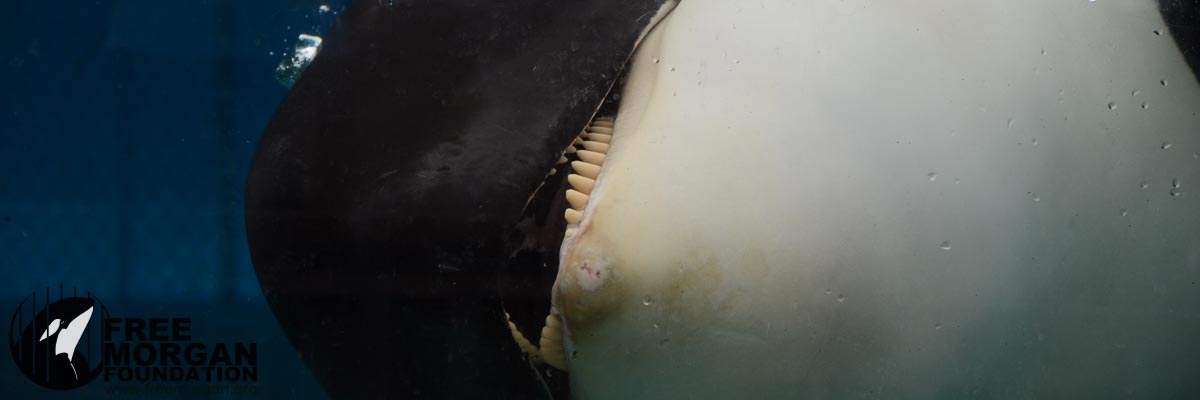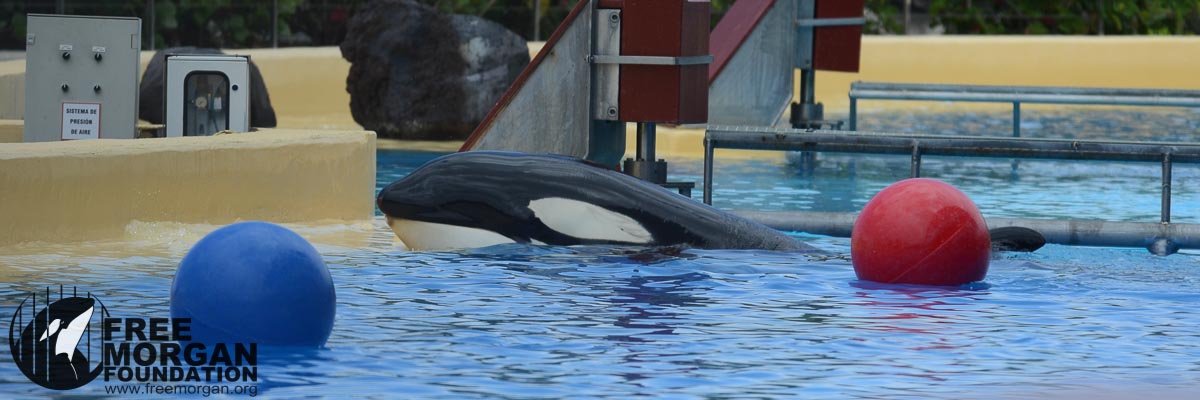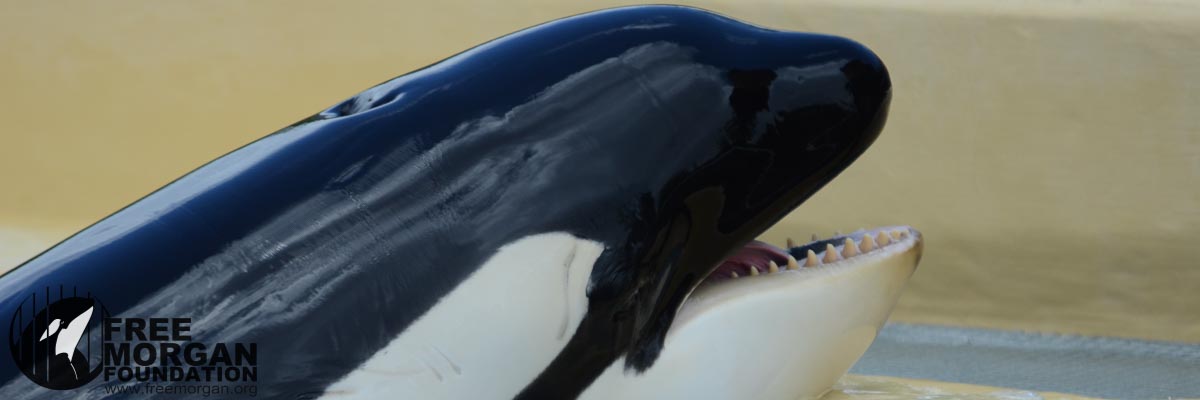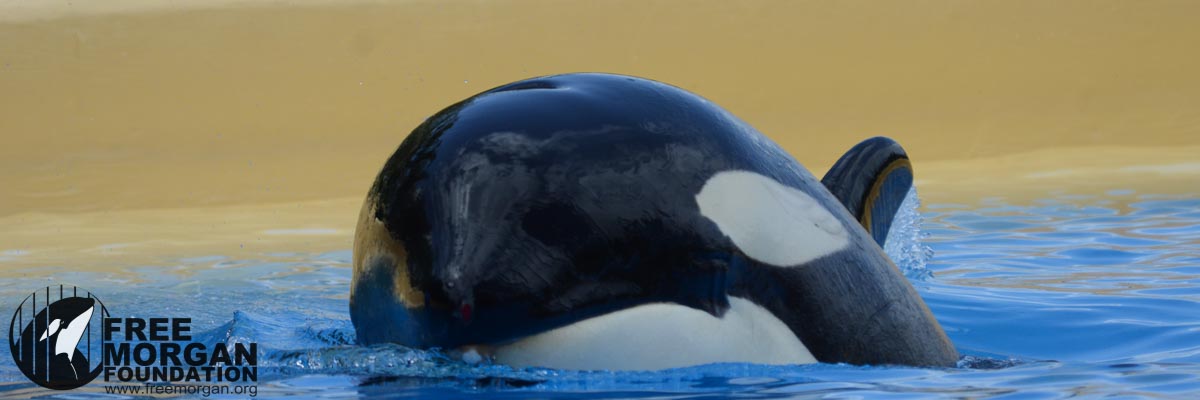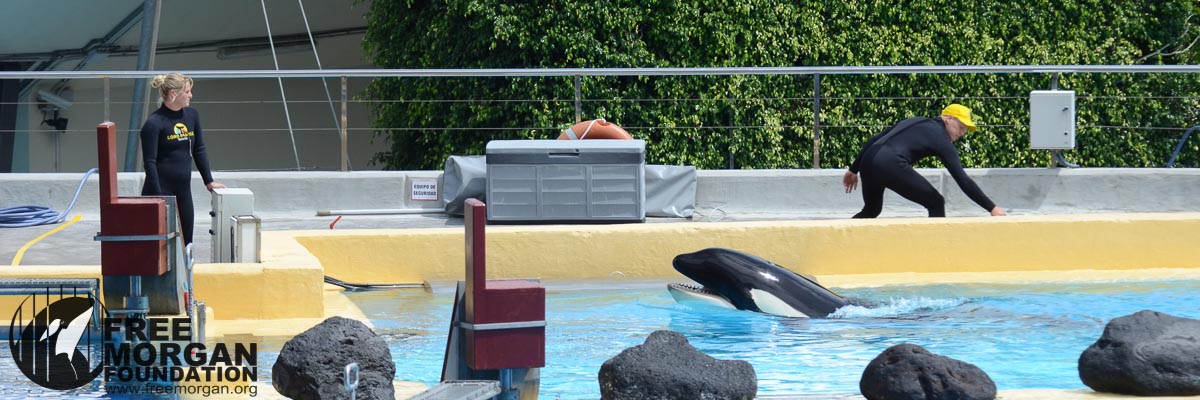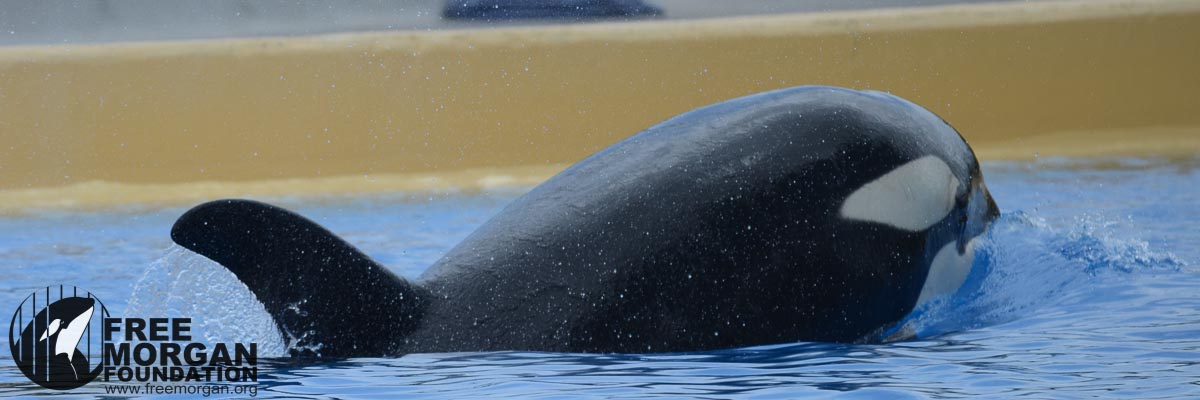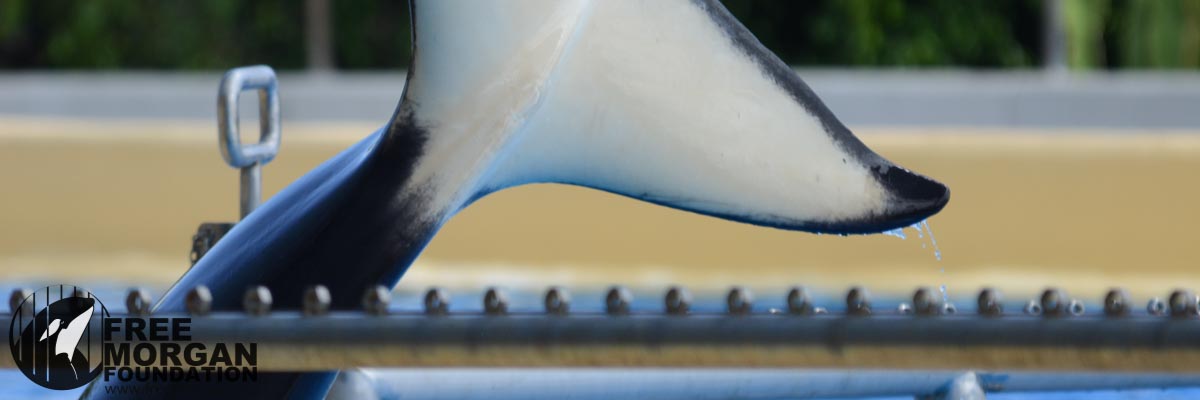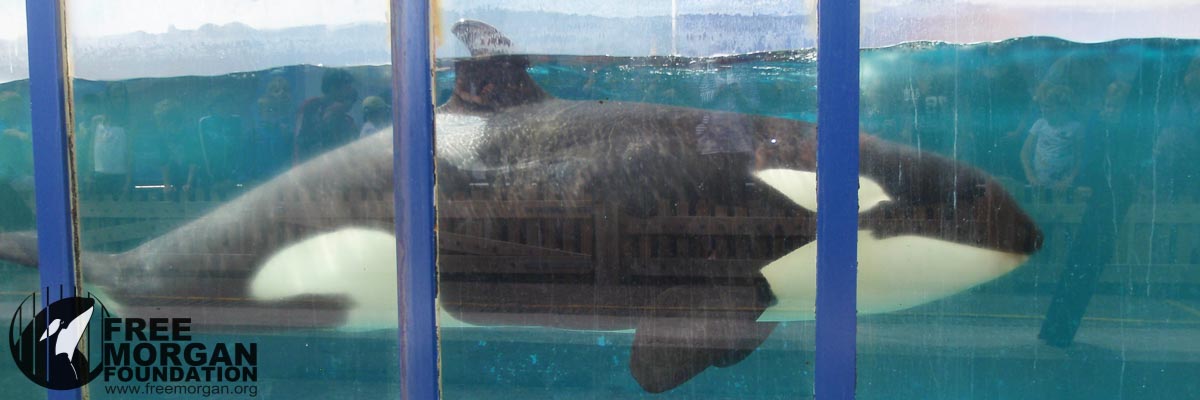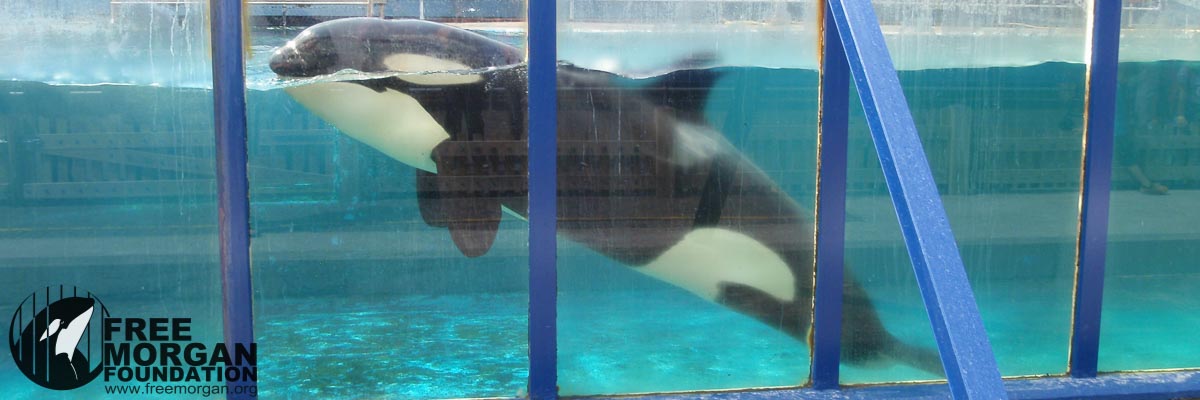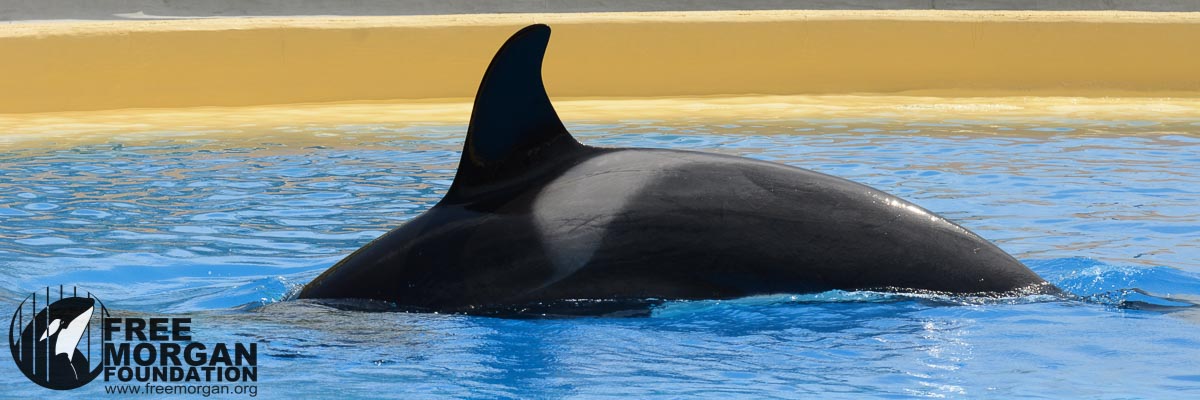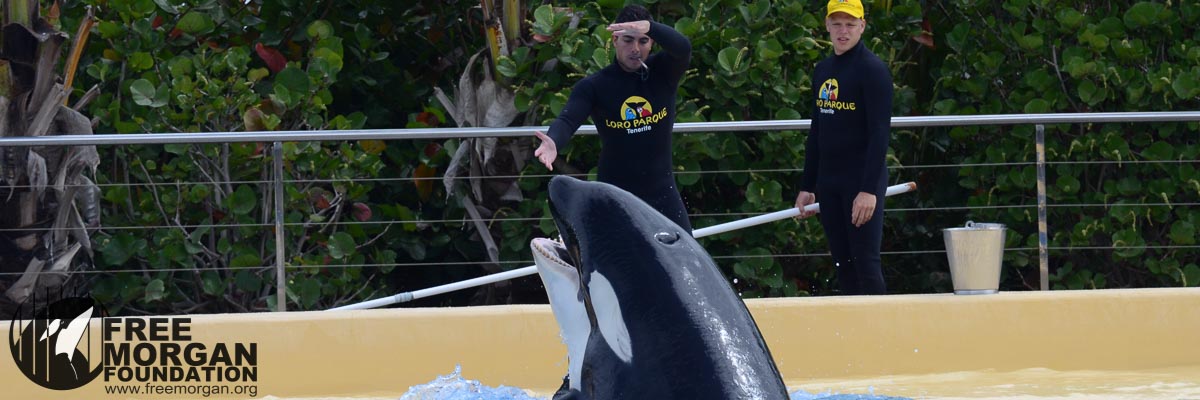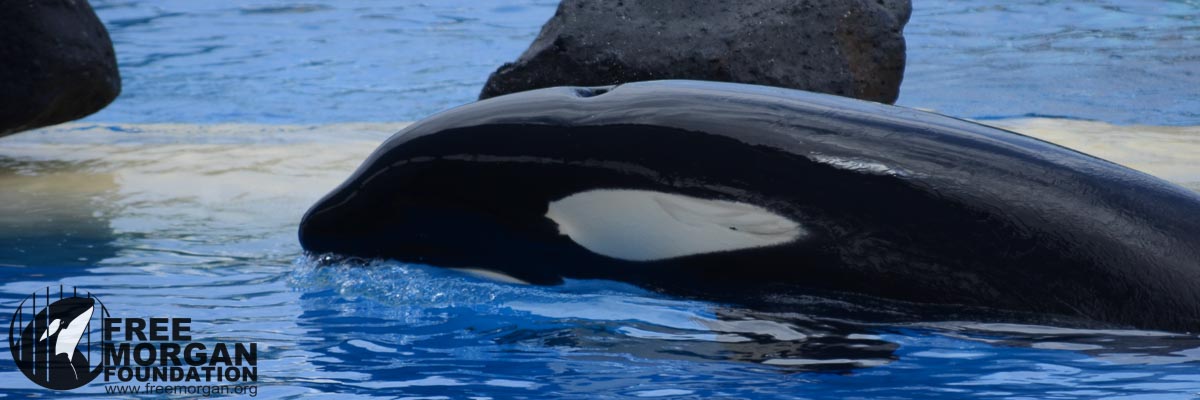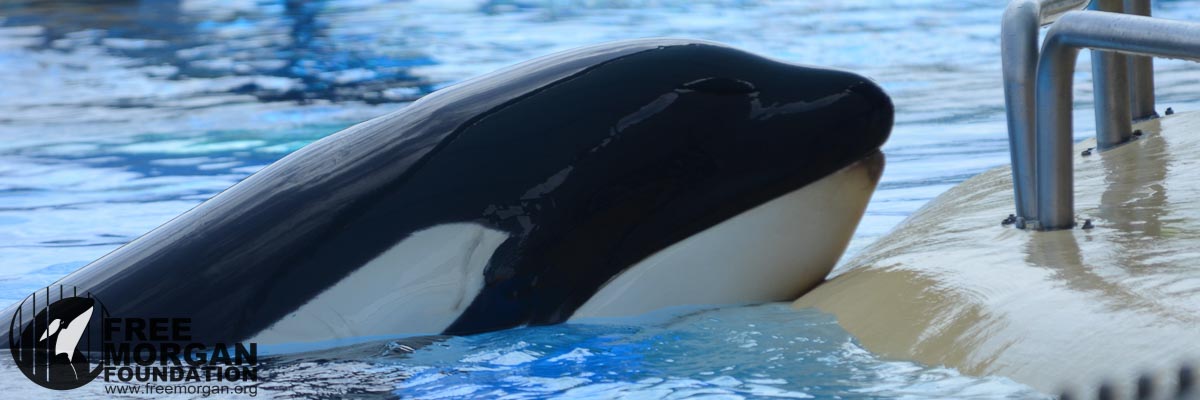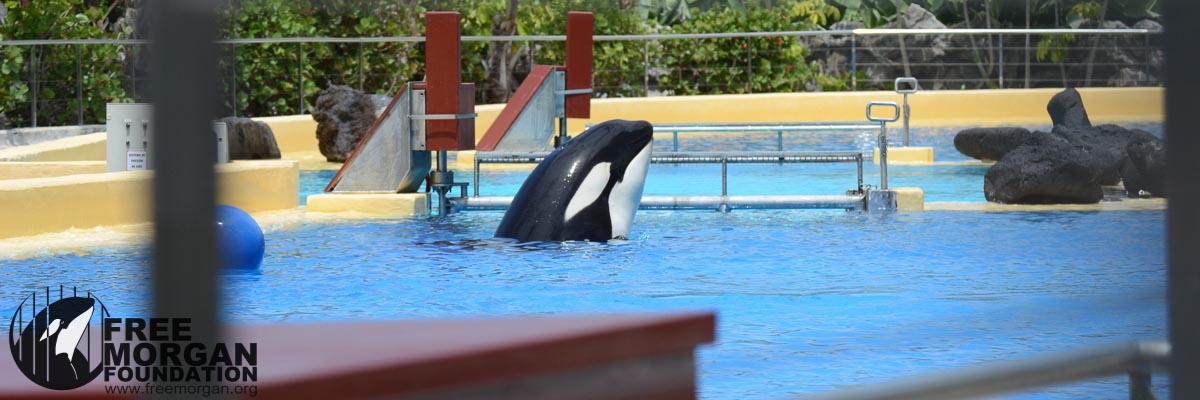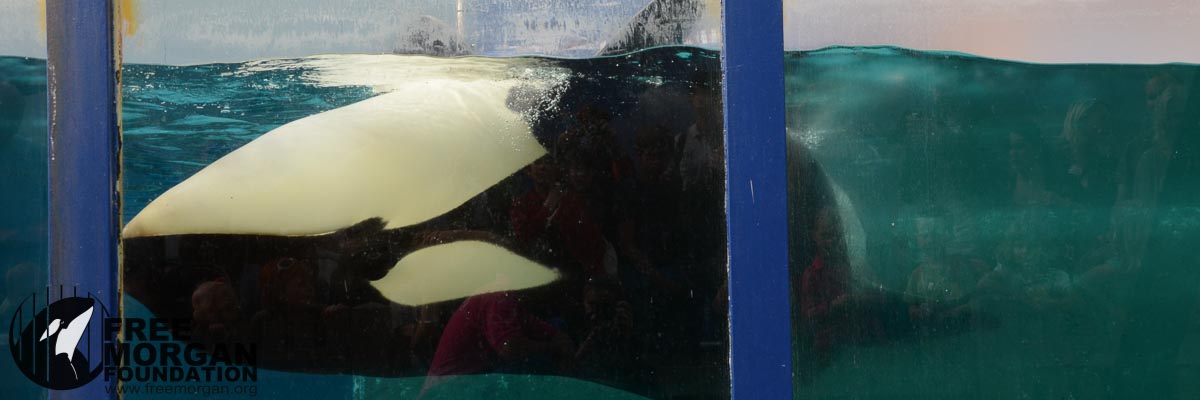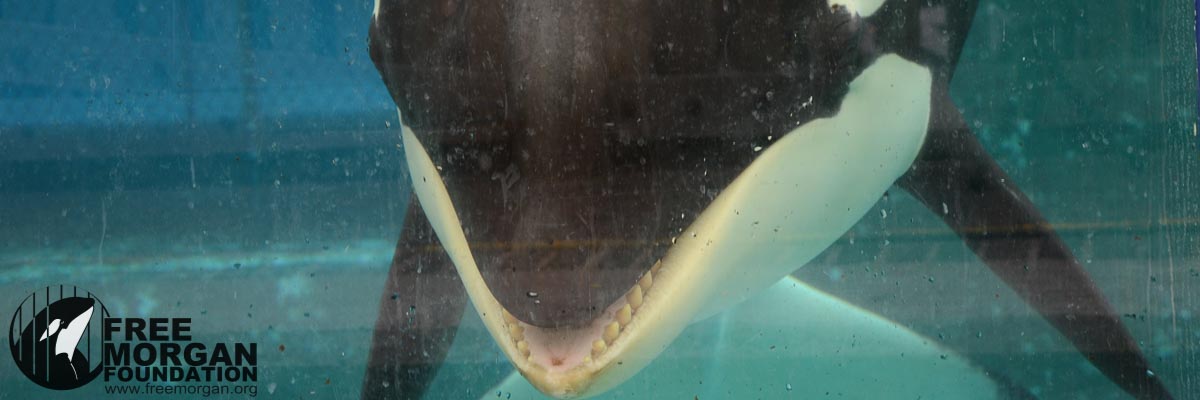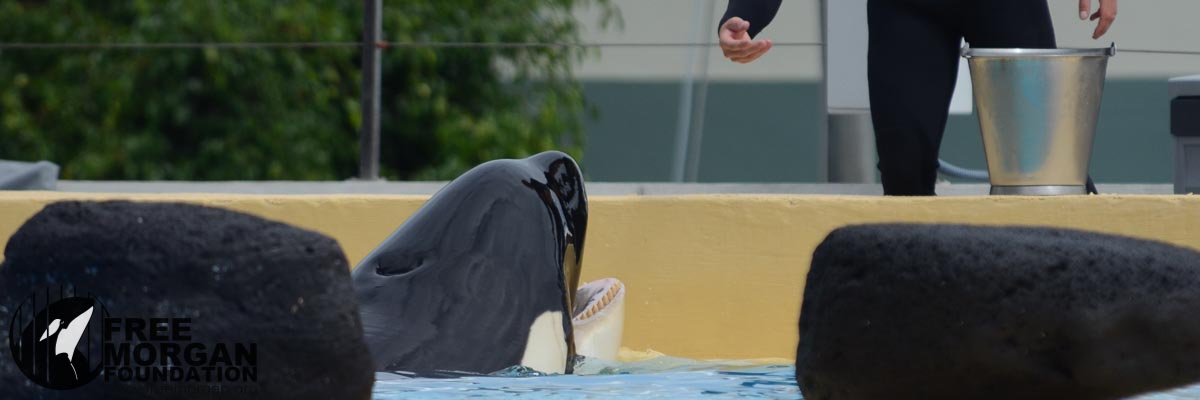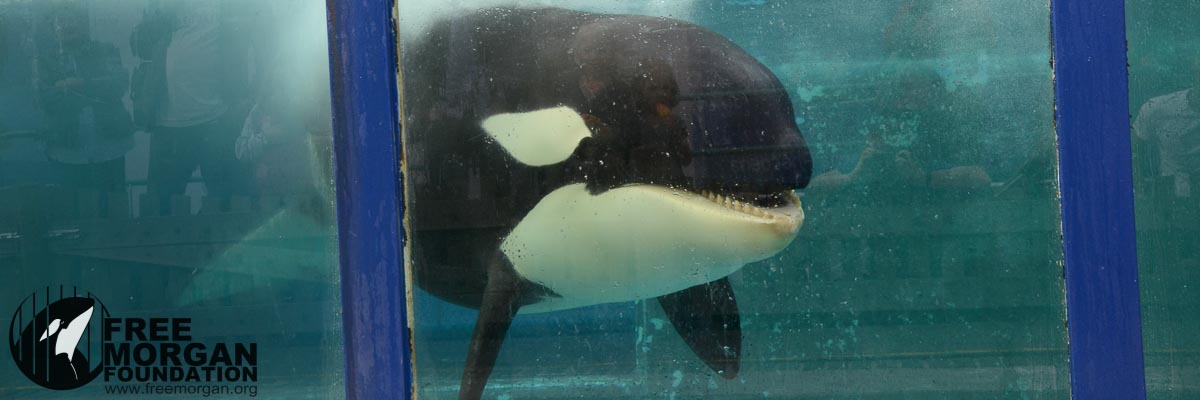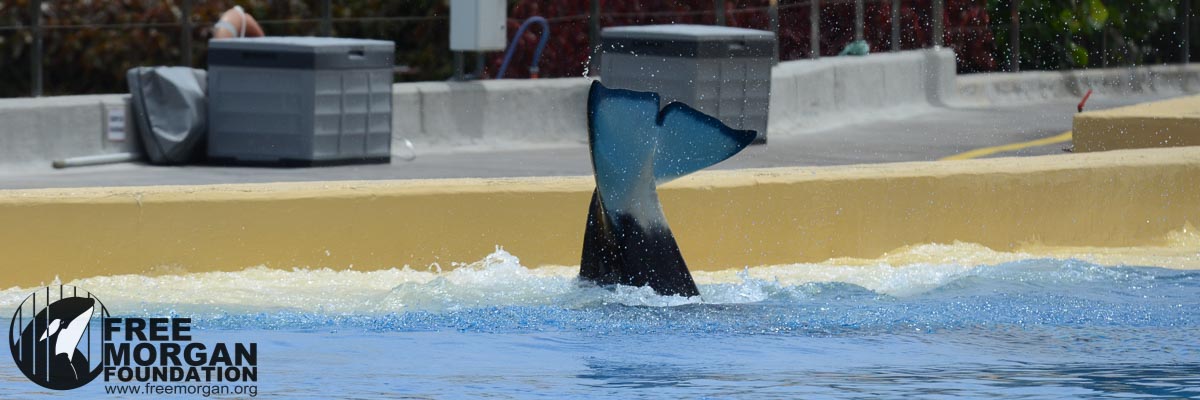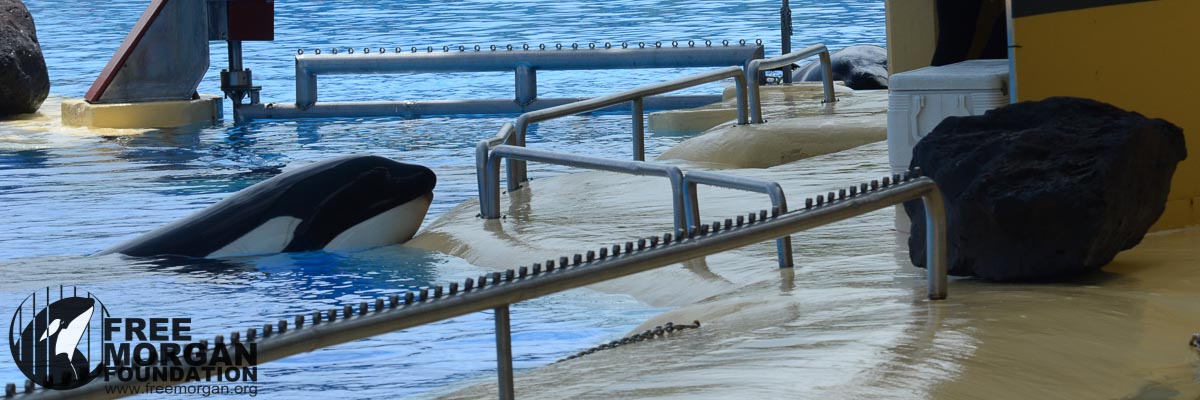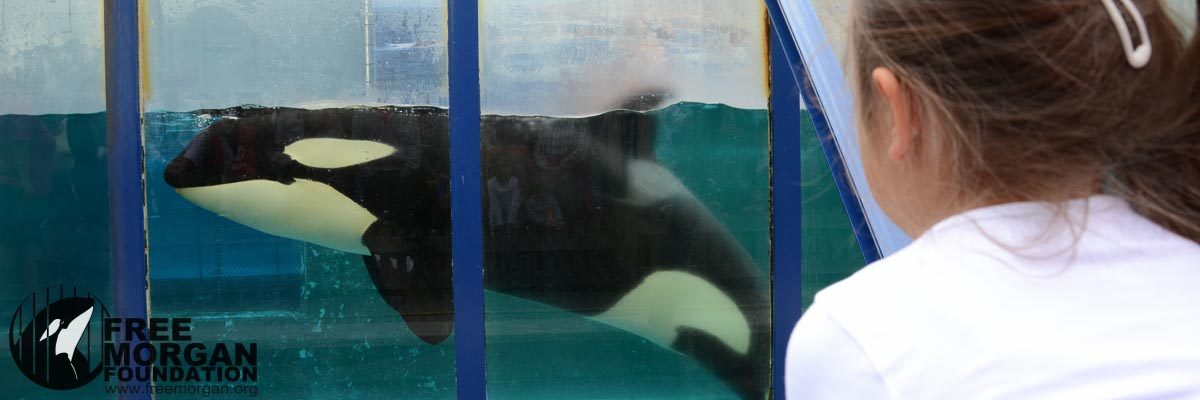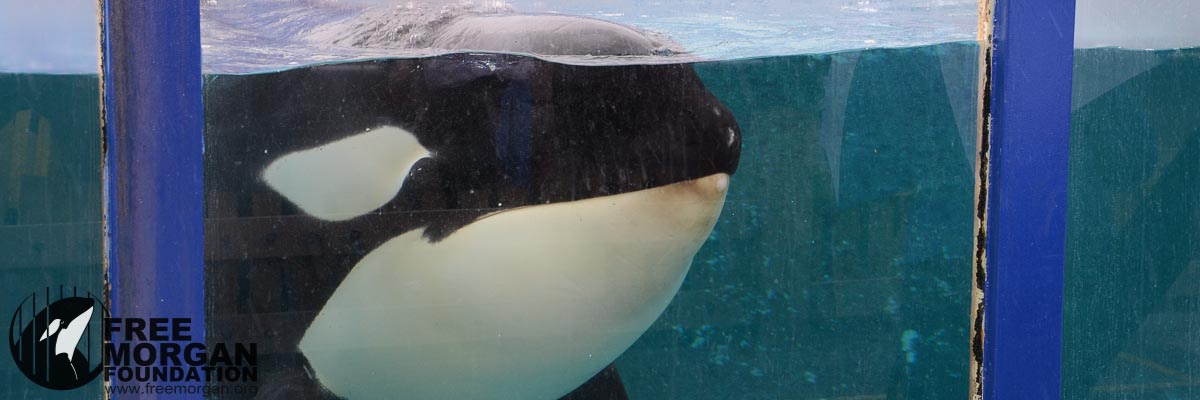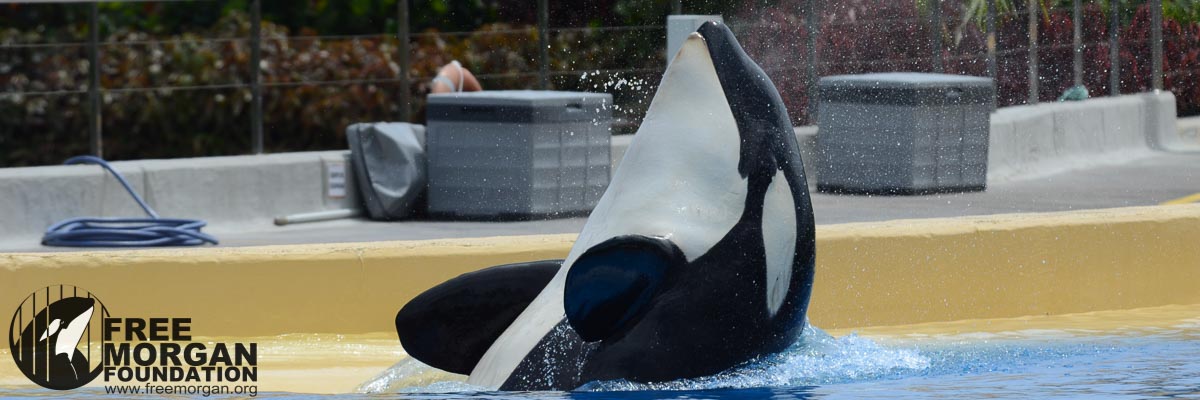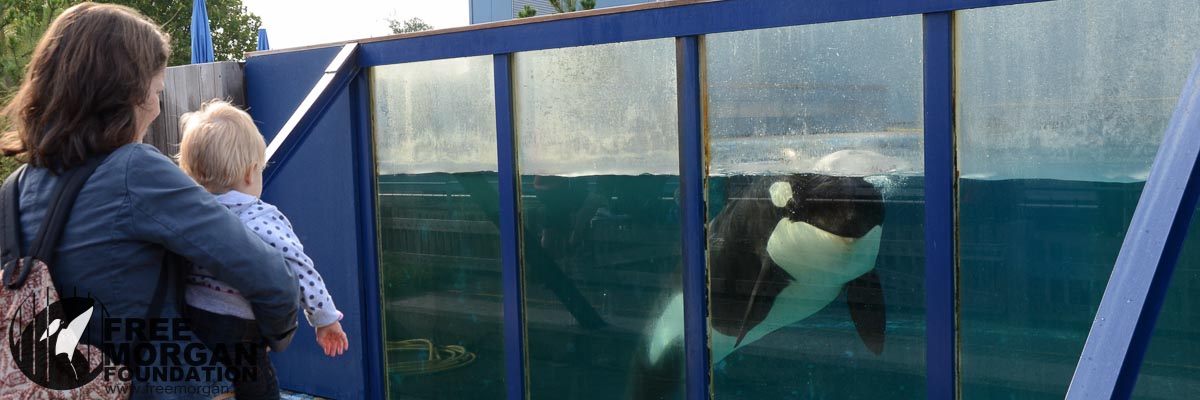Justice for Orca Morgan – ELUSIVE BUT WITHIN REACH
The Free Morgan Foundation (FMF) is disappointed by the outcome of the ruling of the three-judge panel for the District Court in Utrecht, Netherlands, but sees serious grounds for a successful appeal.
For more details about the reasoning behind our claim to the Court, see “Withdrawal of Morgan’s Permit“. The Netherlands Court ruling is presented below (or can be downloaded as an English Ruling pdf, or viewed in the original Dutch).
Contrary to assertions made by Loro Parque in response to the ruling, the Court actually overturned (annulled) the Dutch CITES Management Authority (MA) decision that the FMF was contesting.
In the ruling, the Court clearly explains that the majority of the legal grounds raised by the FMF were in fact correct and that the Dutch CITES MA was wrong under the law to not to fully consider them.
We are of the belief that there are many aspects of the ruling that fall in the favour of Morgan. We remain vigilant in our efforts to ensure Morgan is afforded the full protection owed to her under EU Law.
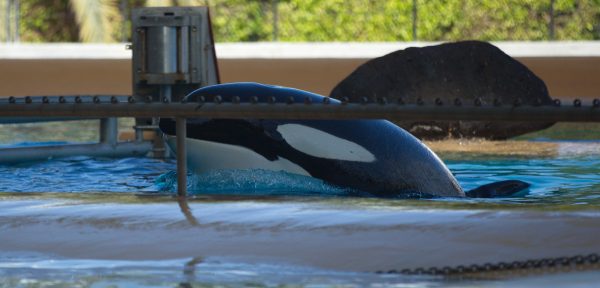
DISTRICT COURT OF THE CENTRAL NETHERLANDS
Hearing location Utrecht
Administrative law
case number: UTR 17/3356
Decision of the multi-judge division dated 26 April 2018 in the matter between
Stichting Free Morgan Foundation in Zeist, the Claimant
(authorised representative: B.N. Kloostra),
and
the State Secretary of Economic Affairs, now the Minister of Agriculture, Nature and
Food Quality, the Defendant
(authorised representatives: P.J. Kooiman and J.J.J. Jansen, MSc.).
The following participated in the proceedings as third pa1ties: Loro Parque Fundacion in Puerto de la Cruz, Spain (Loro Parque), authorised representative: A. Blokhuis-van Balen and Dolfinarium Harderwijk B.V. in Harderwijk (Dolfinarium), authorised representative: D. H. Nas.
Course of the proceedings
In the decision dated 14 December 2016 (the Primary Decision) the Defendant rejected the Claimant’s application of 25 August 2016, which requested the annulment and/or revocation of and/or change/amendment to the EC certificate and/or the decision of 28 July 2011. In a decision dated 12 June 2017 (the Contested Decision) the Defendant dismissed the Claimant’s objection as unfounded.
The Claimant has lodged an appeal against the Contested Decision.
The Defendant has filed a statement of defence.
The examination in court took place on 23 January 2018. The Claimant appeared in the person of M. Spiegl, assisted by the Claimant’s authorised representative. The Respondent was represented by its authorised representatives. J. Almunia, assisted by the authorised representative, appeared on behalf of Loro Parque. Dolfinarium was represented by its authorised representative.
Findings
1. This matter revolves around the orca Morgan (the Orca), who was found, seriously weakened, in the Wadden Sea in 2010 and was subsequently taken to Dolfinarium to recover. On 27 July 2011, the Defendant issued an EC certificate as referred to in Article 8(3) of Council Regulation (EC) No 338/97 of 9 December 1996 on the protection of species of wild fauna and flora by regulating trade therein (the Basic Regulation), for transferring the Orca from Dolfinarium to Loro Parque on Tenerife. The Orca was transported Dolfinarium to Loro Parque on 29 November 2011.
2. The Claimant filed the application of 25 August 2016 because it believes that the EC certificate was issued on the false premise that the conditions for its issuance had been met and because the information that formed the basis for granting the exemption was incorrect. The Claimant asserts that the conditions are not being complied with: the EC certificate is being breached. According to the Claimant, the Orca is not being used for research or education aimed at the protection or conservation of the species, even though this is required on the basis of Article 8(3). opening words and under (g) of the Basic Regulation.
3. The Defendant rejected the Claimant’s application, since he [sic] did not see any reason to assume that the EC certificate was issued on the basis of a false premise. The Defendant asserts that the certificate was issued for a one-off transfer of the Orca in 2011, meaning that it has lost its effect and is no longer in force. It is for the Spanish authorities to decide whether the information included on the EC certificate no longer corresponds to reality. If the Claimant believes that the Orca’s well-being is not being guaranteed, it may initiate proceedings in Spain. according to the Defendant.
4. First of all, Dolfinarium argued that the Claimant lacks an interest in initiating the proceedings, since its purpose in initiating these proceedings for the Orca is unclear. According to Dolfinarium, it has been established in law that transferring the Orca to Loro Parque was the only satisfactory solution.
5. This Court does not concur with Dolfinarium in this regard. Annulment could lead, among other things, to different conditions being attached to the EC certificate and different accommodation for or seizure of the Orca, so that the Claimant’s intended result could actually be achieved and the realisation of that result could actually have meaning for the Claimant. The Claimant therefore has an interest in initiating the proceedings, meaning that its appeal is admissible.
6. The Claimant argued that the Defendant wrongly asserted that the EC certificate had lost its effect. The EC certificate was not issued solely for the transfer to Loro Parque. After all, it also constitutes an exemption to the prohibition included in Article 8(1) of the Basic Regulation against the purchase, offer to purchase, acquisition for commercial purposes, display to the public for commercial purposes, use for commercial gain and sale, keeping for sale, offering for sale or transporting for sale of the species (which includes the Orca) listed in Annex A. Therefore. the EC certificate did not lose its effect after the Orca was transferred, but remains in force for as long as the Orca stays at Loro Parque.
7. This Court finds that the Defendant’s assertion in the Contested Decision, that the EC certificate has lost its effect, is incorrect. On the basis of Article 11(2) of the Basic Regulation, it is possible for an EC certificate to be deemed void if it is established that the certificate was issued on the false premise that the conditions for its issuance were met. The wording of this article shows that annulment will only come up for discussion if it is established afterwards that the conditions had not been met when the EC certificate was issued. Although new circumstances do not have to be taken into account in this assessment, it is incorrect to state that the EC certificate may no longer be annulled due to the transfer already having taken place. This Court finds that this possibility to annul already indicates that the EC certificate has not lost its effect. To this extent, the Contested Decision is based on incorrect reasoning. The ground for appeal is successful.
8. Furthermore, the Claimant has argued that the Defendant is authorised to annul the EC certificate. The assertion that solely the Spanish authorities are so authorised, is based on an incorrect interpretation of Article 11(2) of the Basic Regulation.
9. This Court finds that Article 11(2) of the Basic Regulation provides that a certificate may be deemed void if a competent authority establishes that it was issued on the basis of a false premise. This Court finds that this wording means that, in this case. both the Dutch and the Spanish authorities are authorised to assess nullity. This Court has not found any substantiation in the Basic Regulation for the claim that solely the Spanish authorities would be authorised and that the authority that issued the certificate would not. Here, too, the Contested Decision is based on incorrect reasoning. This ground for appeal is successful as well.
10. The Claimant clarified its application at the hearing in the sense that it is now only applying for the annulment of the EC certificate on the basis of Article l1(2) of the Basic Regulation. The Claimant believes that its assertions regarding conditions not being complied with and its statements that the EC certificate is being breached, should also lead to the conclusion that the EC certificate’s issuance was based on false premises. Put briefly, the Claimant asserted in this regard that the Orca is being used for commercial purposes, that the Orca is being used for breeding purposes, that the Orca turns out to be older than previously assumed, and that the accommodation is bad for the Orca’s health and well-being.
11. This Court finds that it is necessary to assess whether the conditions for issuing the EC certificate had been met at the time of its issuance. In concrete terms, this means that it should be reviewed whether the conditions of Article 8(3), opening lines and under (g) of the Basic Regulation had been met and therefore whether the Orca was intended to be used for research or education aimed at the protection or conservation of the species. The box stating that it had been issued on the basis of Article 8(3)(g) of the Basic Regulation had been ticked on the EC certificate. In this regard, this Court notes that although the box reading “to be used for the advancement of science/breeding or propagation/research or education or other non-detrimental purposes” had been ticked on the EC certificate, this Court finds, when viewing this wording in conjunction with the text of the Basic Regulation, that this is a contraction of exemption conditions (f) (breeding and propagation) and (g) (research or education). The Defendant has explained that the text on the forms has since been changed. The parties both agree that the EC certificate was issued on the basis of Article 8(3), opening lines and under (g) of the Basic Regulation. i.e. for research or education. In order to assess whether the certificate was issued on the basis of the false premise that the conditions for issuance had been met, the only relevant facts and circumstances are those that were already present, but not yet known, when the EC certificate was issued. The Claimant put forward facts and circumstances that were, according to the Claimant, already present, but not yet known, at the time of issuance. The fact is the Claimant asserted that, from the outset, Loro Parque intended to breed the Orca and therefore had other intentions than the Dutch authority, for whom it was logical that the Orca would only be used for research and educational purposes. According to the Claimant, Loro Parque has indicated that it hoped the Orca would become pregnant, and the Orca has since become pregnant. The Claimant also asserted that the EC certificate was issued on the false premise that the Orca was still young. It has now been shown that this was not the case.
12. This Court finds that the Defendant should have assessed the facts and circumstances put forward in the context of Article 11(2) of the Basic Regulation. The allegation that there were plans from the start to breed the Orca, the fact that the Orca is currently pregnant and the discovery that the Orca is older than she was believed to be at the time of her transfer to Loro Parque were not previously up for discussion and did not form part of the proceedings held before the Administrative Law Division of the Council of State (Afdeling bestuursrechtspraak van de Raad van State, ALDCS), which issued a decision on 23 April 2014 (ECLI:NL:RVS:2014:1423). In its decision-making process on the Orca’s well-being, the Defendant did briefly consider the possibility of the Orca being used for breeding purposes and the fact that the Orca turns out to be older than she was believed to be. This Court finds. However, that the Defendant should have assessed that in the context of the allegation that it was the intention right from the start to breed the Orca, instead of keeping the Orca for research and education purposes. However. the Defendant failed to do this. The Contested Decision is flawed in this respect, too, and must also be annulled with a view to the principle of due care.
13. This Court must now assess whether the legal consequences of the Contested Decision can be upheld under Section 8:72(3) opening words and under (a) of the General Administrative Law Act. This Court finds that this is possible, and therefore finds the following.
14. The Claimant has not argued convincingly that the Orca was never intended to be used for research and education purposes, but for breeding purposes only. The mere argument that Loro Parque expressed its hopes for the Orca becoming pregnant is insufficient reason to assume that the Orca was intended to be used for breeding purposes right from the start. The same applies to the fact that the Orca is currently pregnant. This Court considers that the intended use for research and education does not preclude the Orca from becoming pregnant. This Court finds insufficient basis in the Claimant’s submissions to conclude that the Orca was intended for breeding purposes alone. Nor has it become apparent that the Orca has not been used for research and education purposes at all. With respect to the Claimants argument that the assumed age of the Orca was incorrect at the time the EC certificate was issued, this Court considers that it has not become evident that the Orca’s age played a decisive role in issuing the EC certificate. Therefore, this fact cannot lead to the decision being annulled, either.
15. With respect to the Claimant’s allegation that the Orca is being used for commercial purposes in breach of the EC certificate, this Court finds that the decision of the ALDCS of 23 April 2014 referred to above already considered that the fact that although Loro Parque does carry out commercial activities this does not detract from the fact that Loro Parque also carries out activities pertaining to research and education. The facts and circumstances submitted by the Claimant in this regard were already known at the time and cannot therefore lead to the conclusion that there was a false premise as referred to in Article 11(2) of the Basic Regulation.
16. With respect to the Claimant’s submissions regarding the Orca’s health and well-being, the Defendant has rightly taken the view that in the proceedings before the ALDCS, which issued a decision on 23 April 2014, it was already found that the health and well-being of the Orca at Loro Parque was not under review and that proceedings may be brought in Spain if the Claimant believes that Loro Parque is not complying with the requisite safeguards for the Orca’s well-being.
17. Furthermore, the Claimant submitted that the Defendant wrongly stated that Section 80 of the Dutch Flora and Fauna Act (Flora- en Faunawet, DFFA) does not apply to the EC certificate. On the basis of that Section, the Defendant should have investigated whether the new facts give cause to revoke or amend the granted exemption.
18. This ground for appeal does not succeed. The issuance of the EC certificate was based on the Basic Regulation, not on the DFFA. Therefore, the EC certificate cannot be annulled on the basis of Section 80 DFFA.
19. As the material findings of the Contested Decision are correct on the basis of the foregoing, the legal consequences of the annulled decision will be upheld.
20. As this Court finds the appeal well-founded, this Court orders the Defendant to pay the Claimant the court registry fees it has incurred.
21. This Court orders the Defendant to pay the costs of the proceedings incurred by the Claimant. On the basis of the Legal Costs (Administrative Law) Decree, this Court sets these costs at EUR 1002 for the legal assistance provided by a third party in a professional capacity (1 point for the submission of the notice of appeal, 1 point for the appearance at the hearing. with a value of EUR 501 for each point and a weighting factor of 1).
Decision
This Court:
– declares the appeal to be well-founded:
– annuls the Contested Decision:
– orders that the legal consequences of the Contested Decision will be upheld:
– orders the Defendant to compensate the Claimant for the EUR 333 it has paid in court registry fees:
– orders the Defendant to pay the Claimants costs of the proceedings. up to the amount of EUR 1002.
This decision was issued by R.J. Praamstra. president, and L.A. Banga and M.L. van Emmerik, members, in the presence of A.M. Slierendrecht. clerk of the court. The decision was pronounced in public on 26 April 20 I 8.
Copy sent to the parties on: 26 APR 2018
